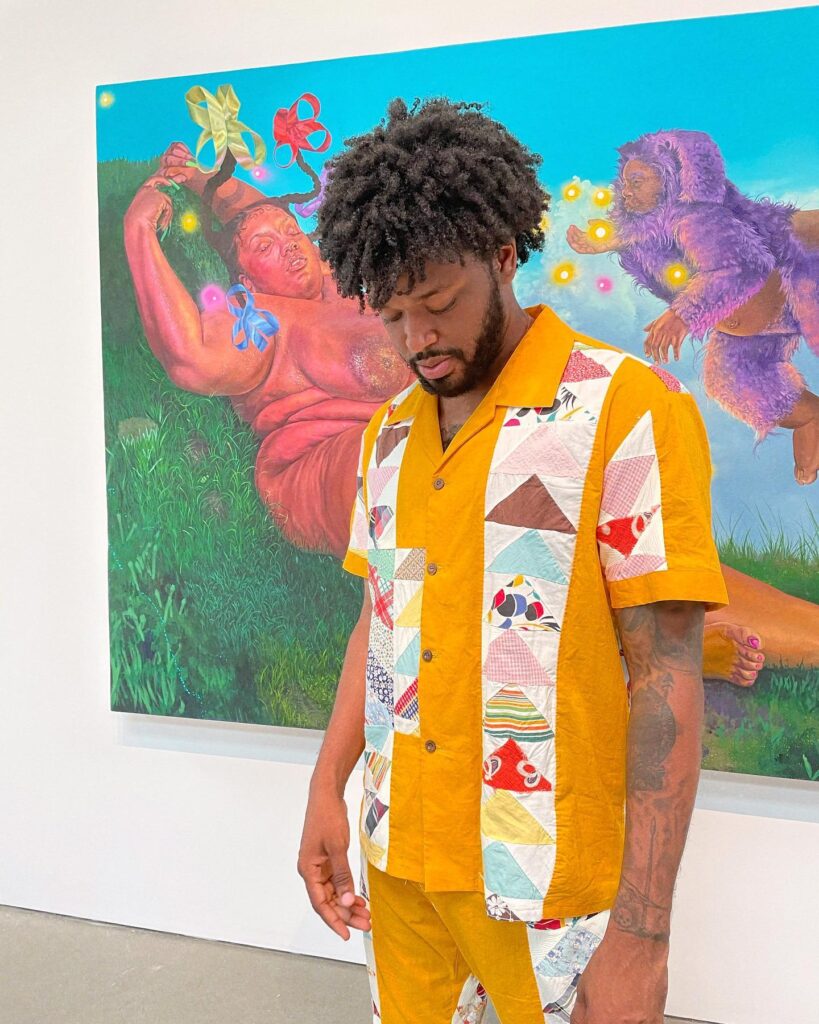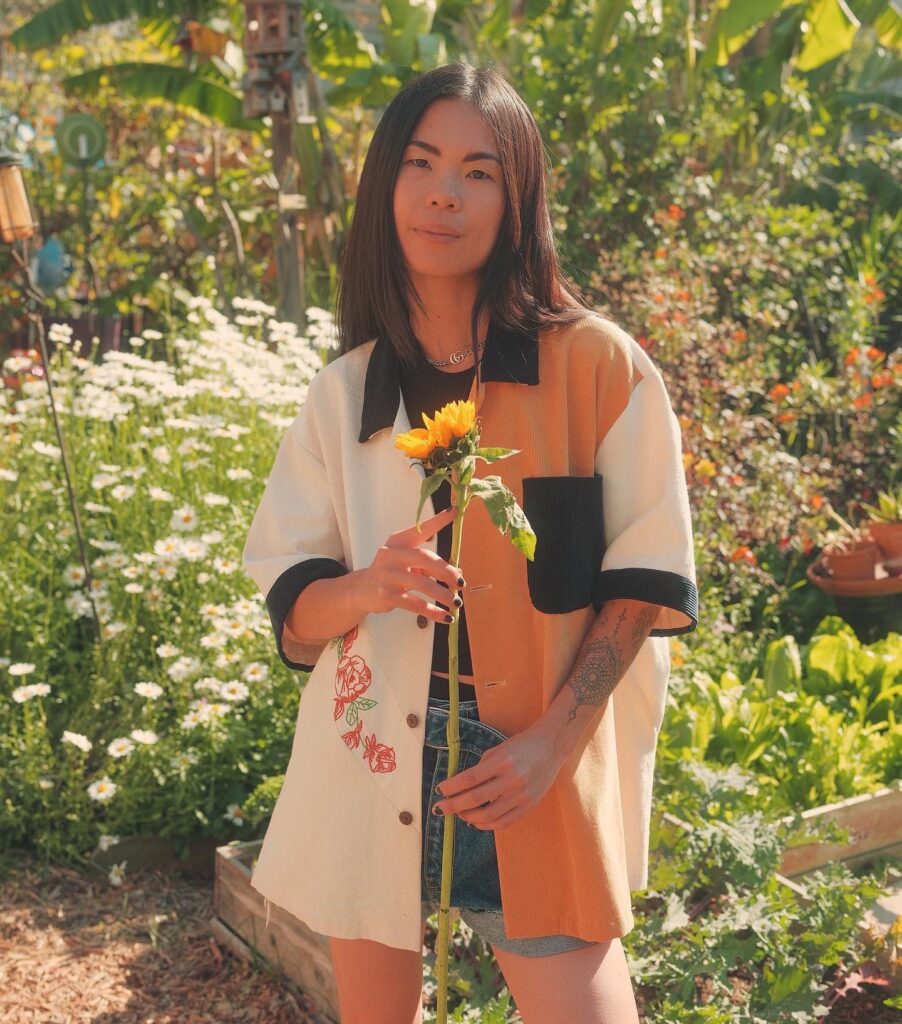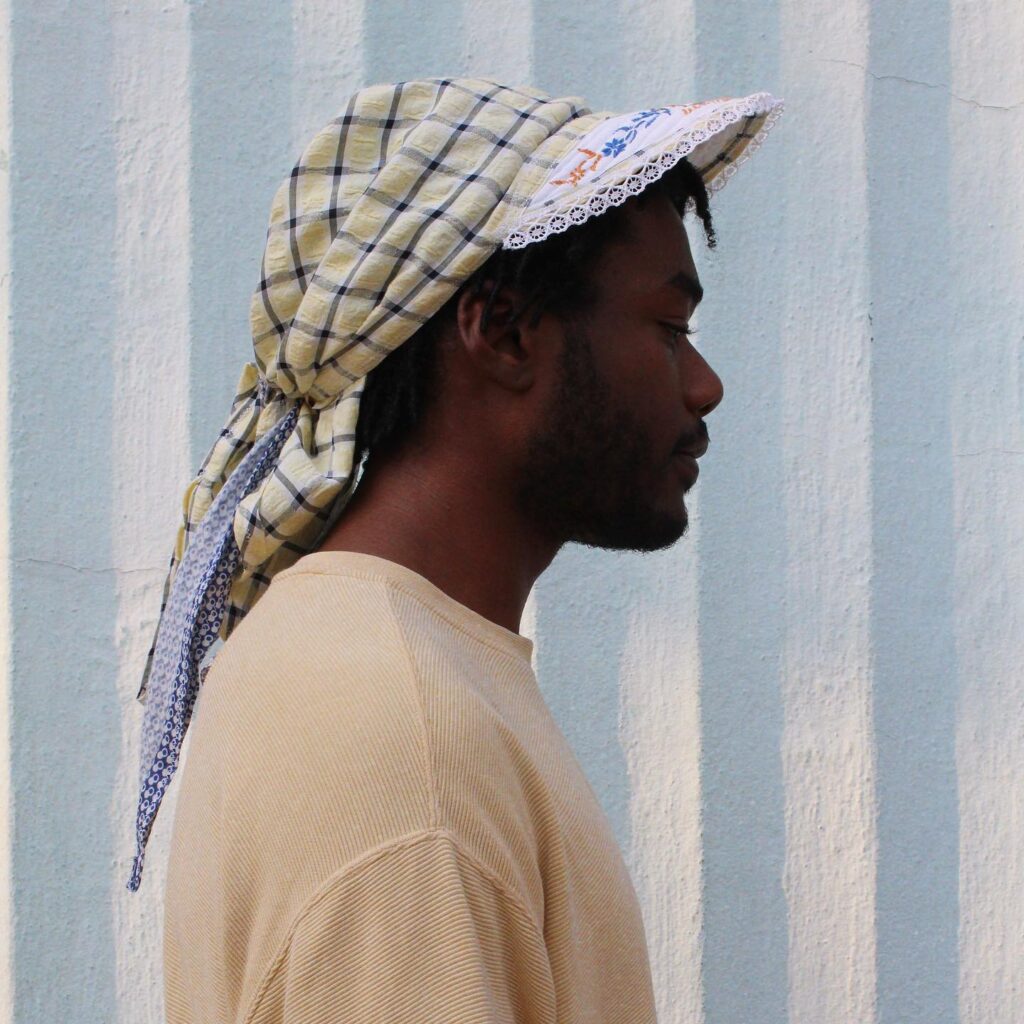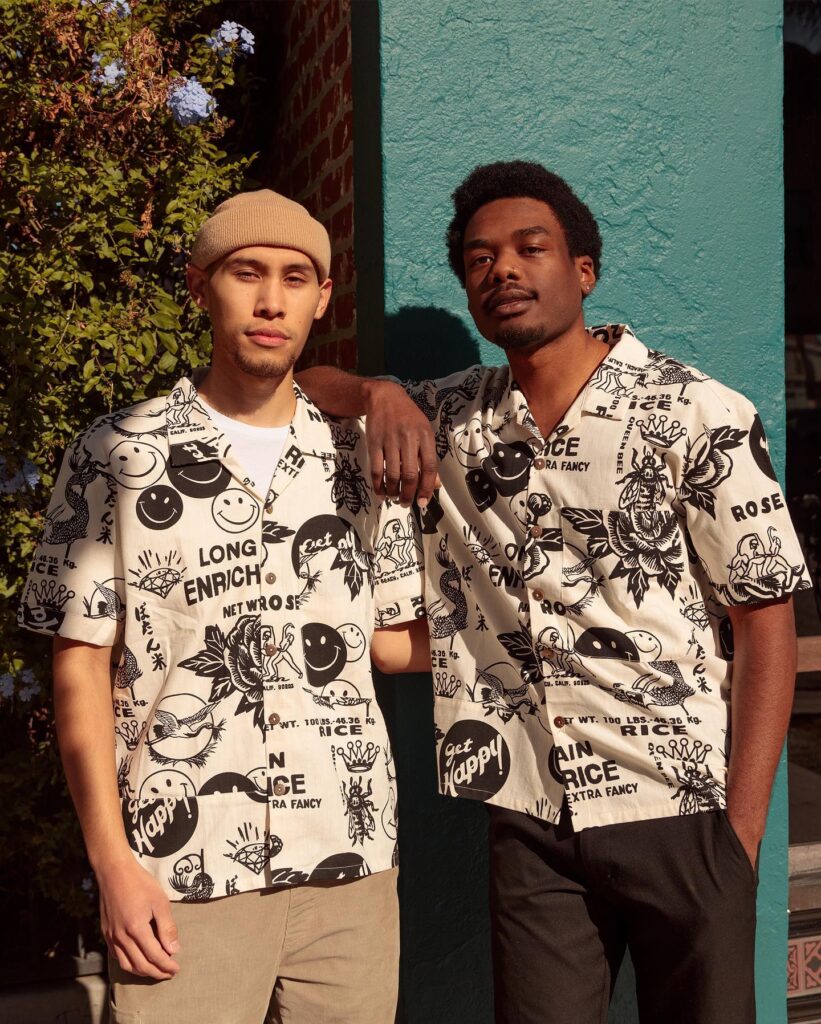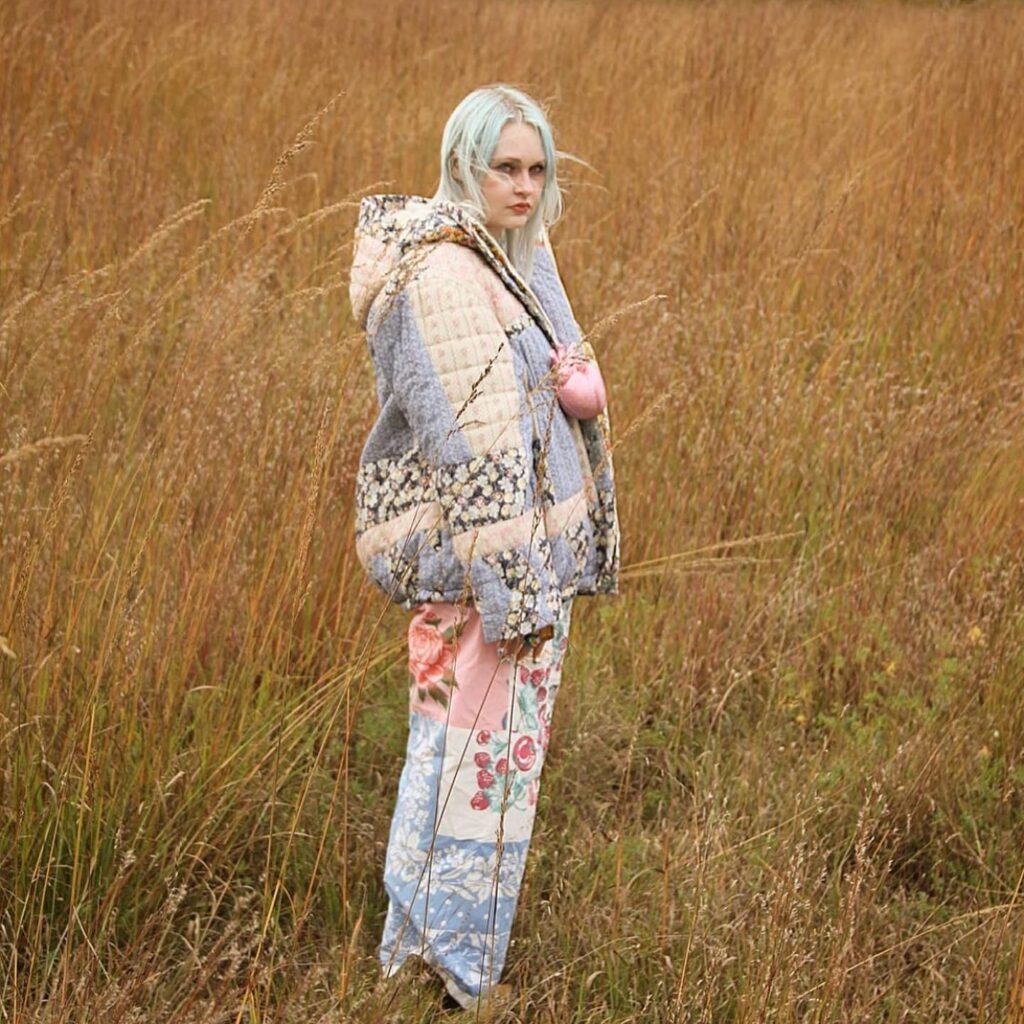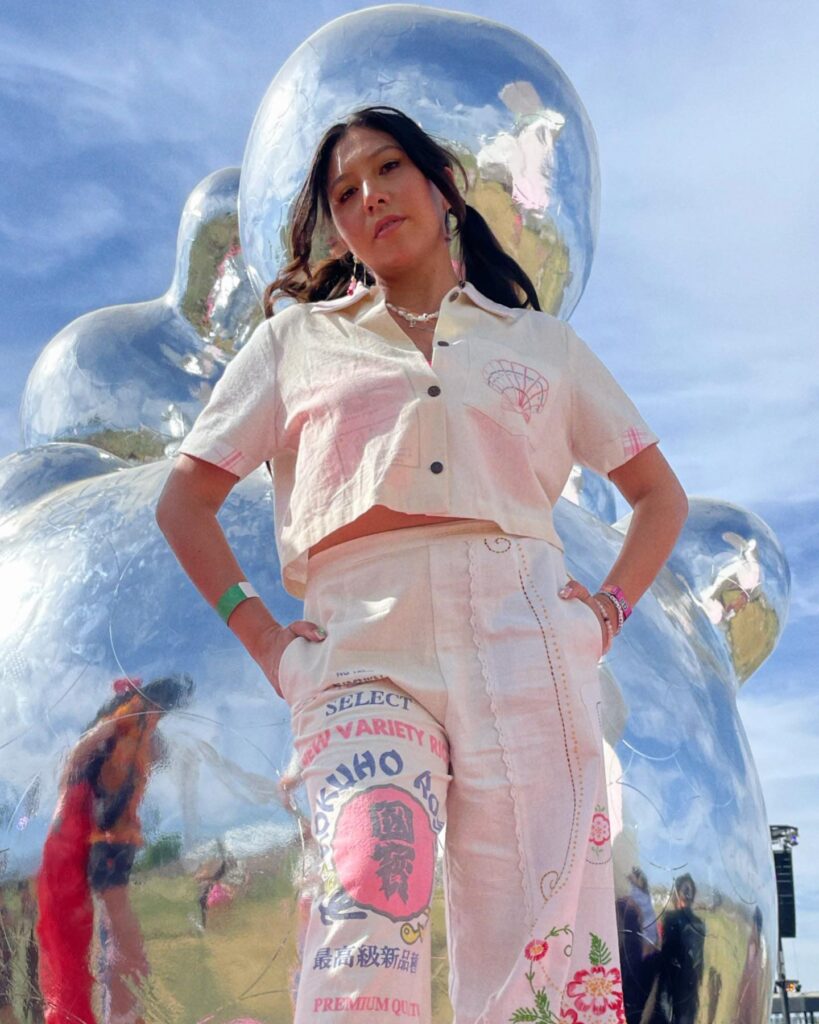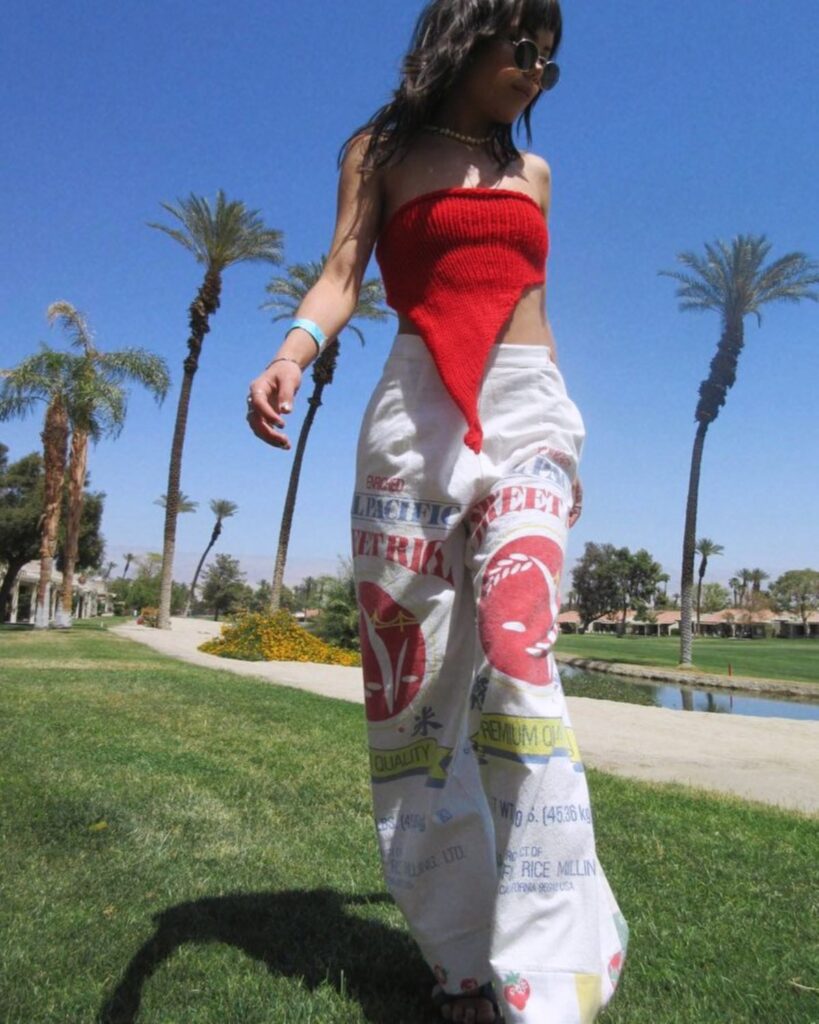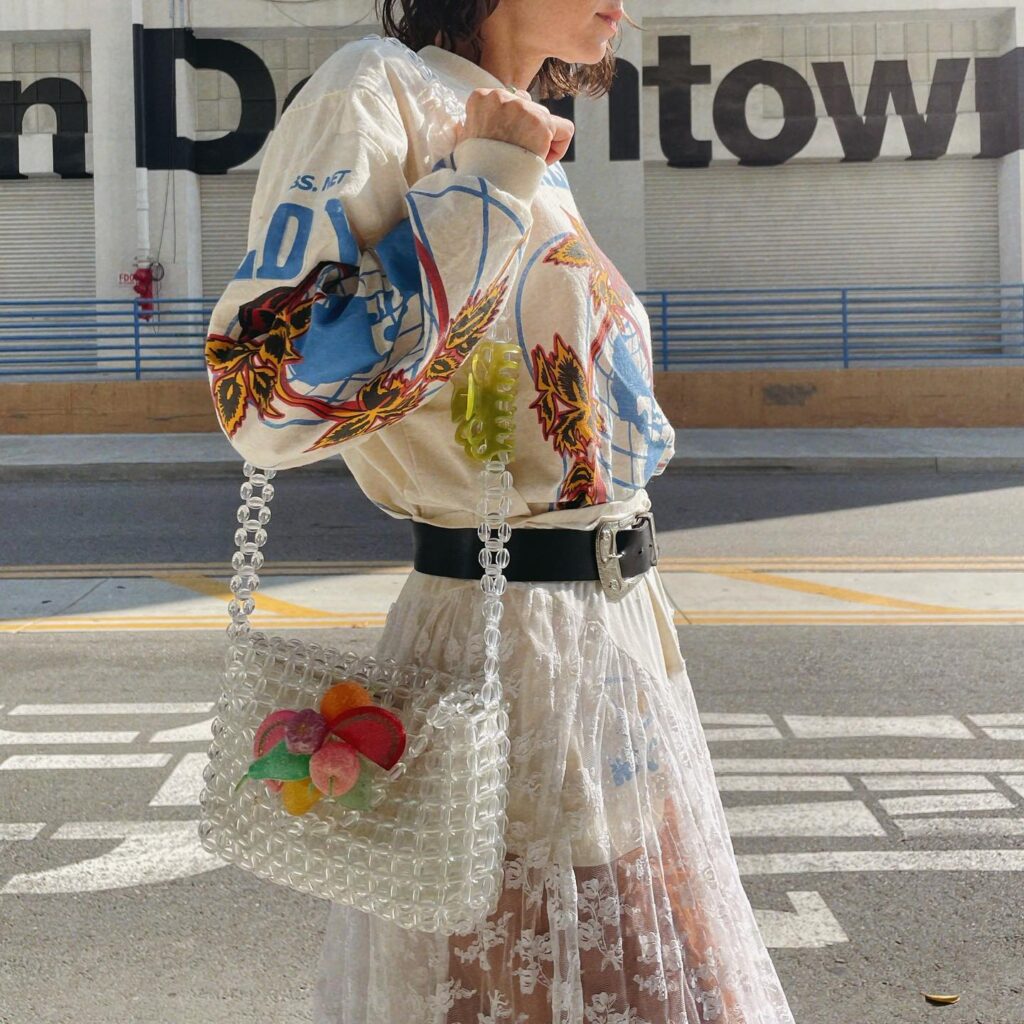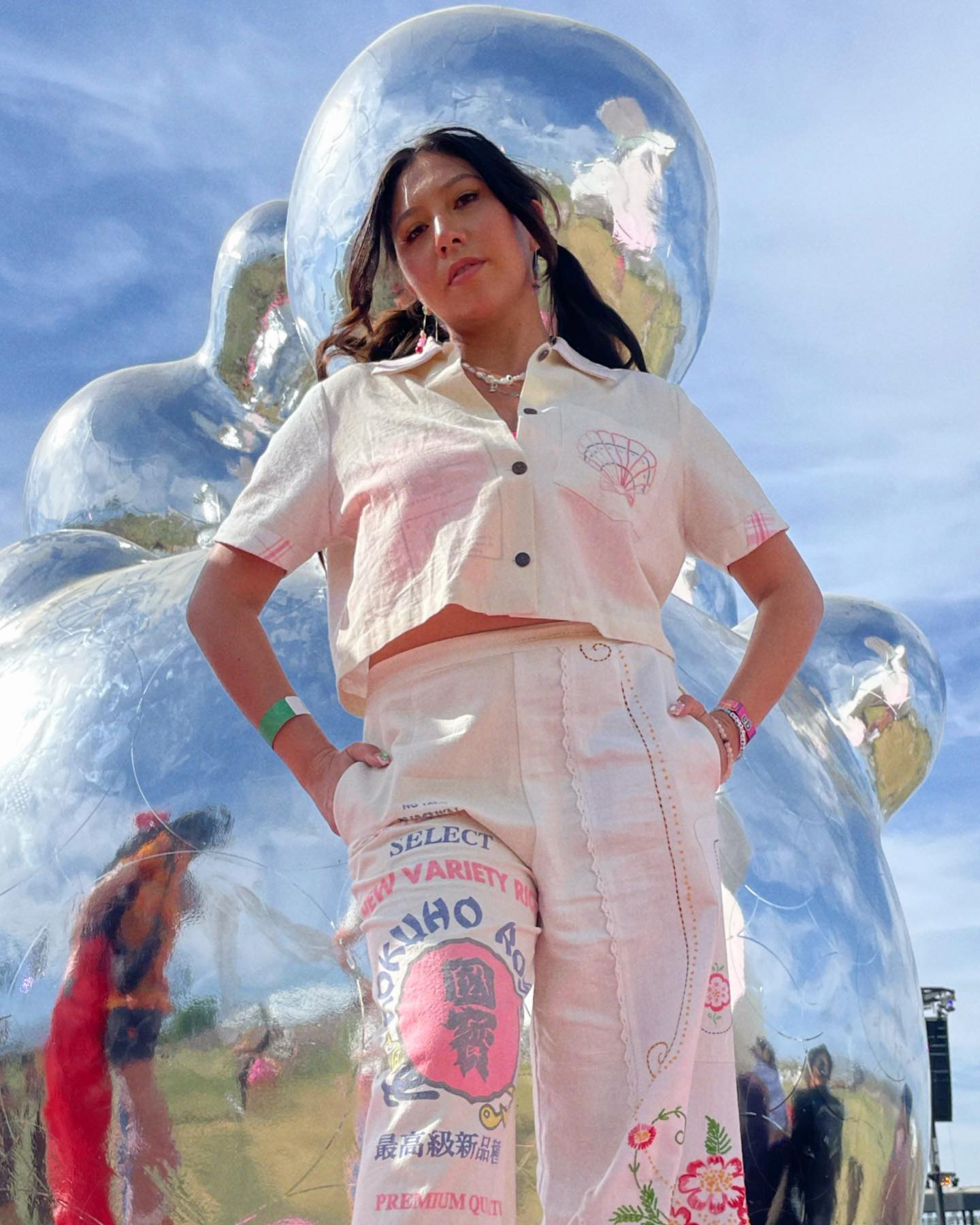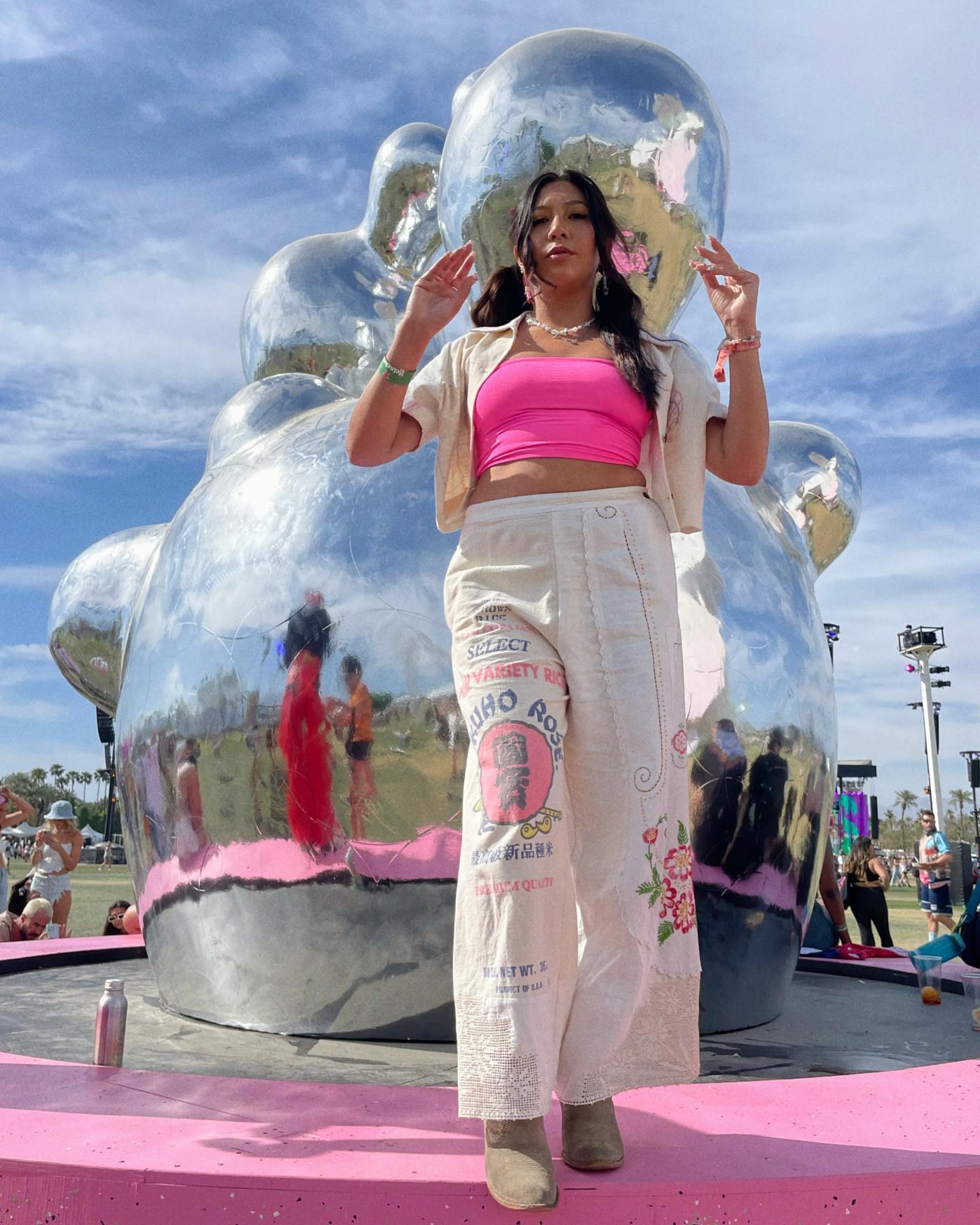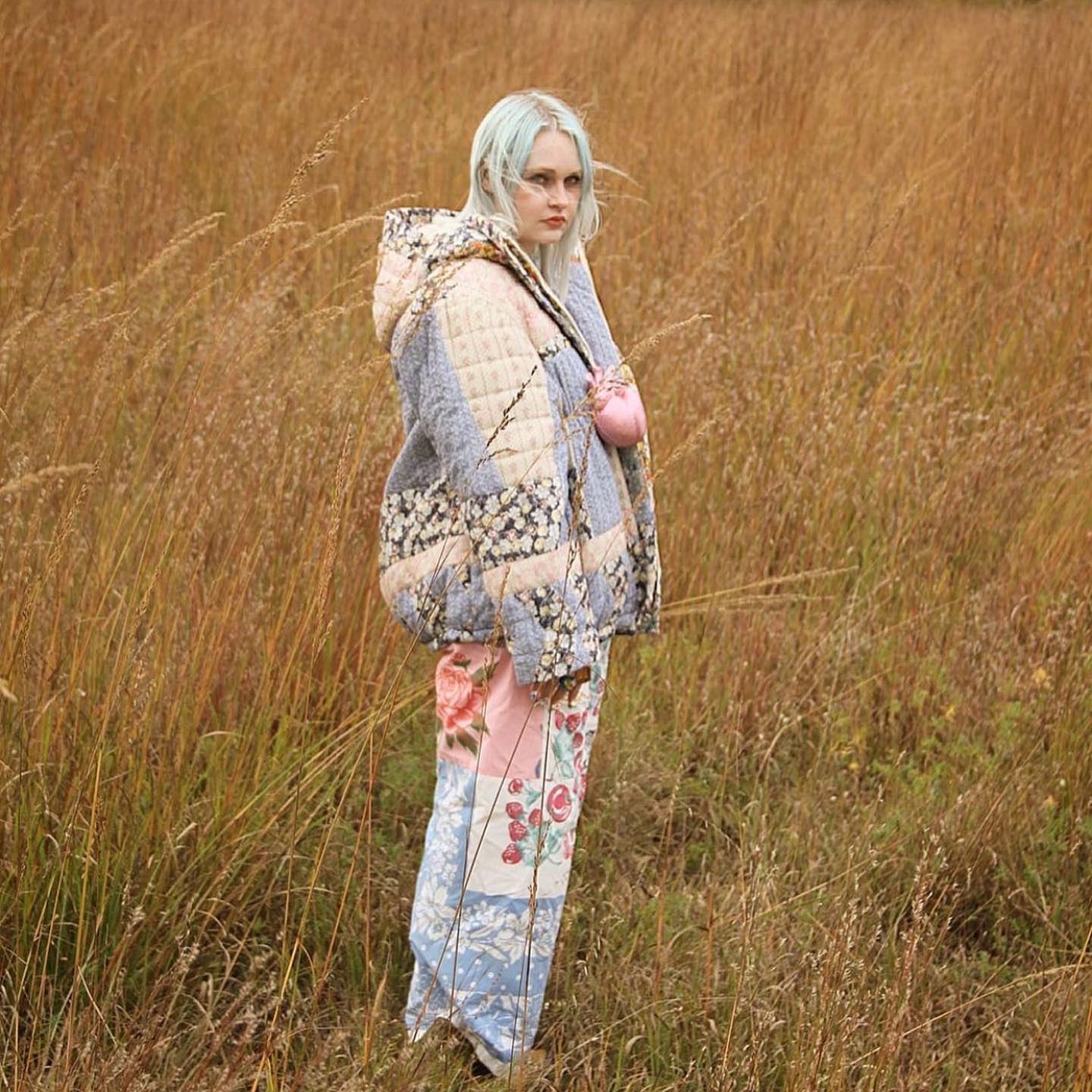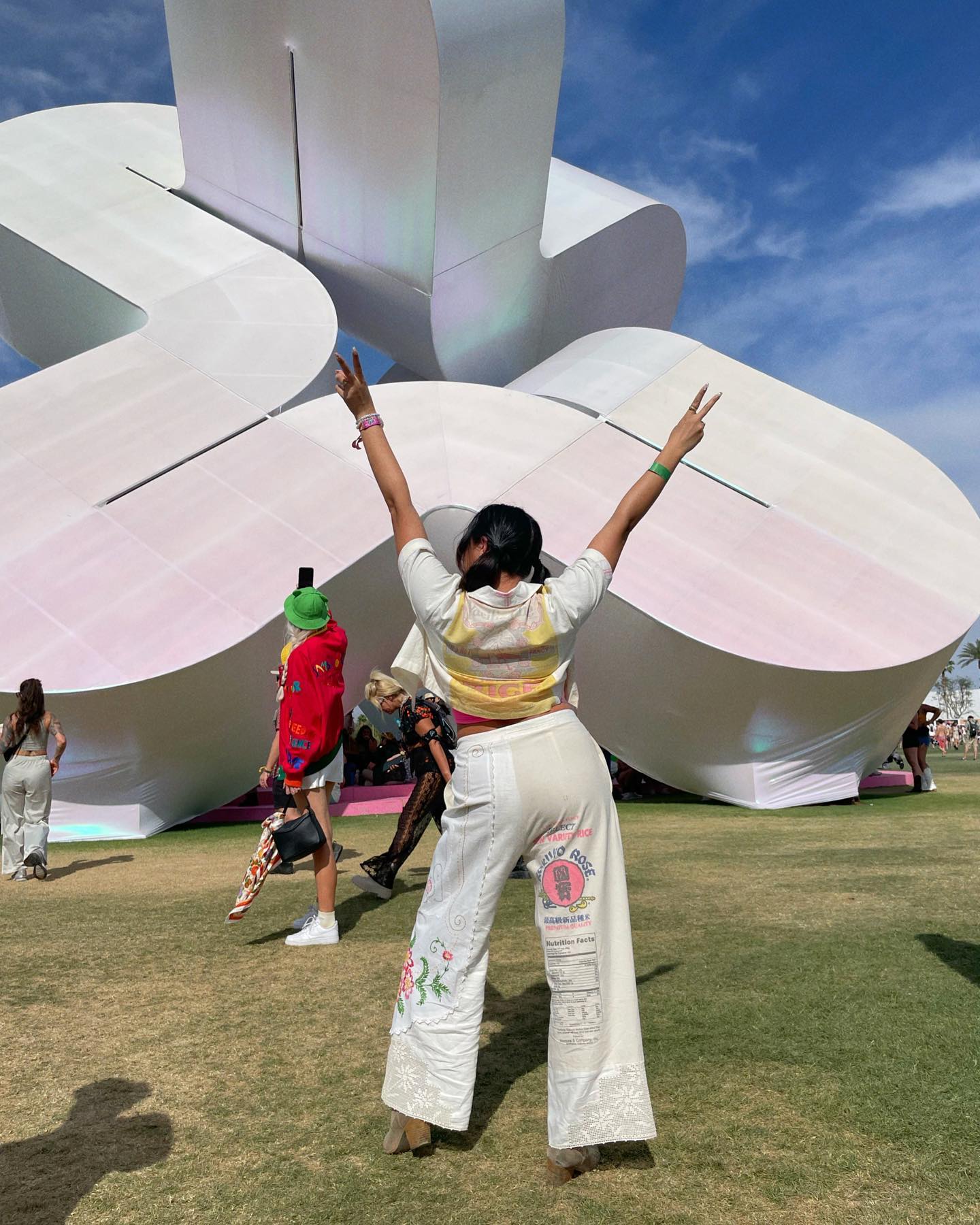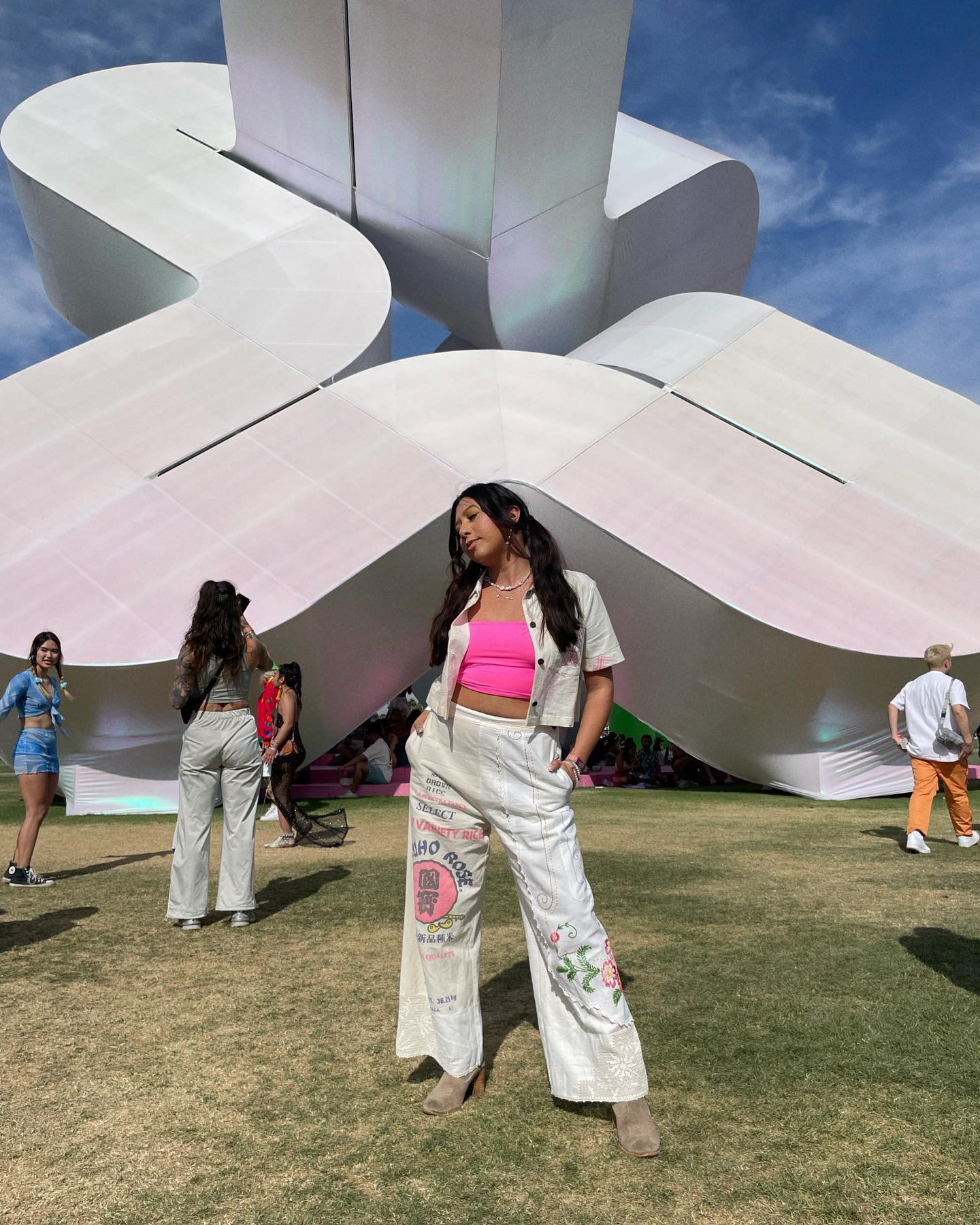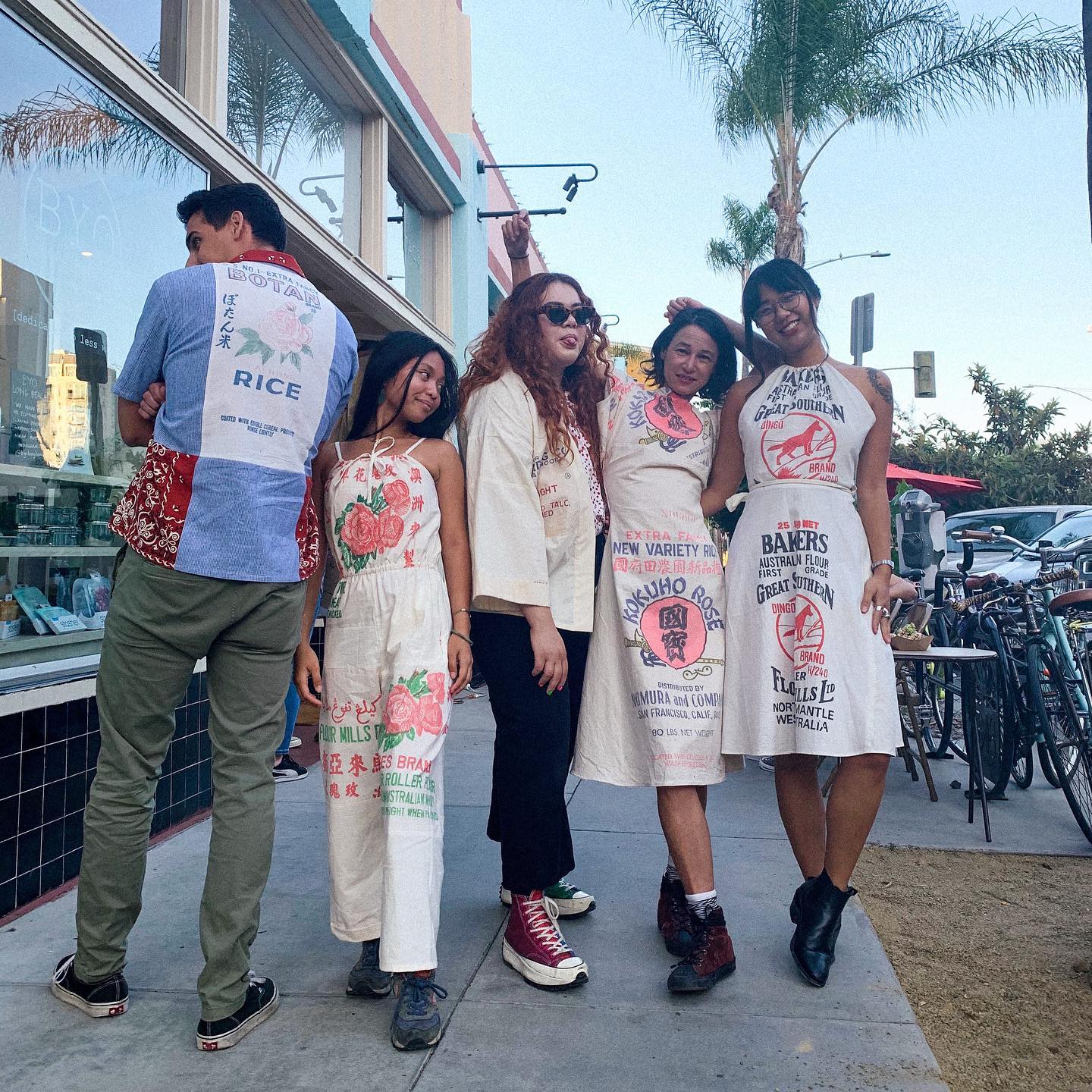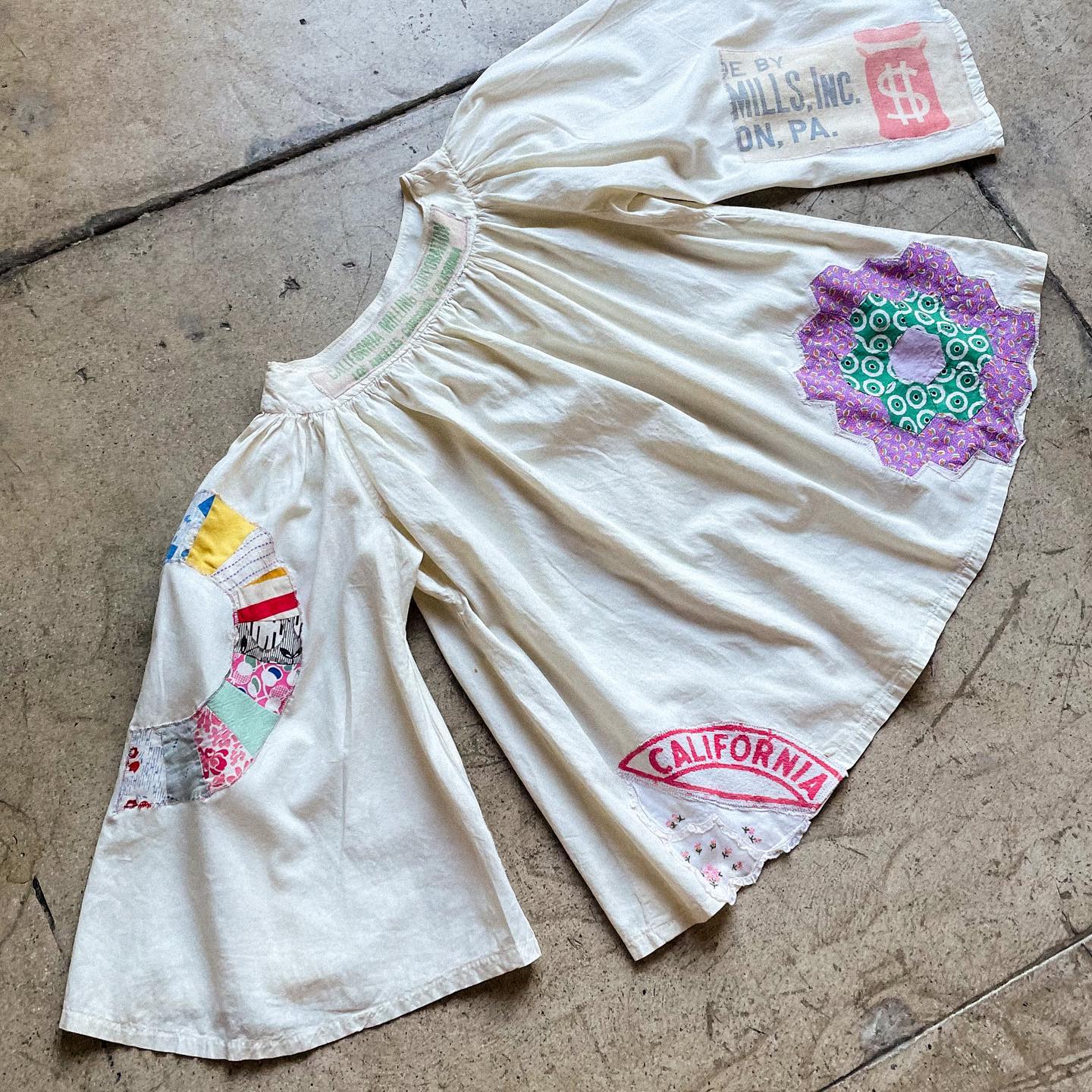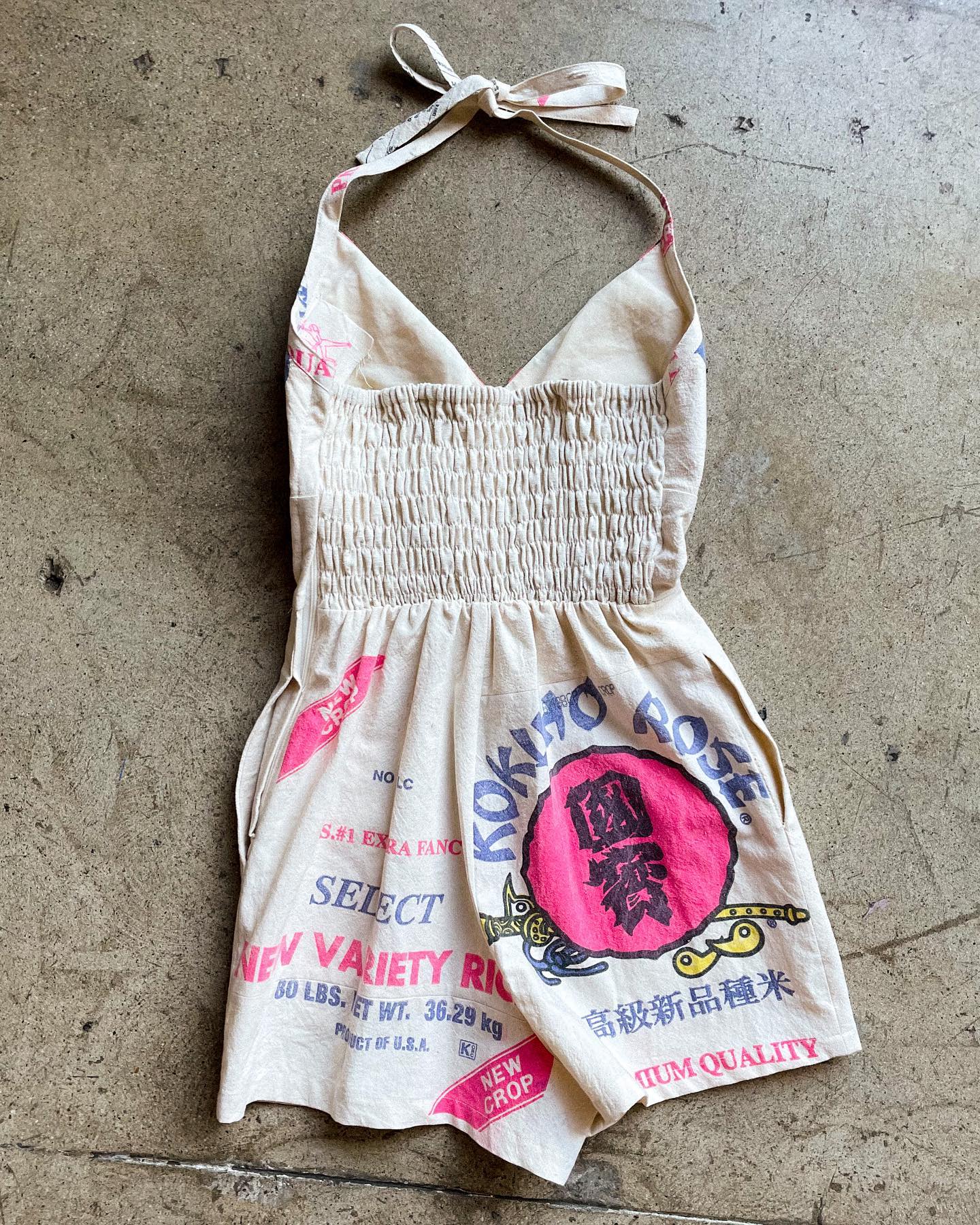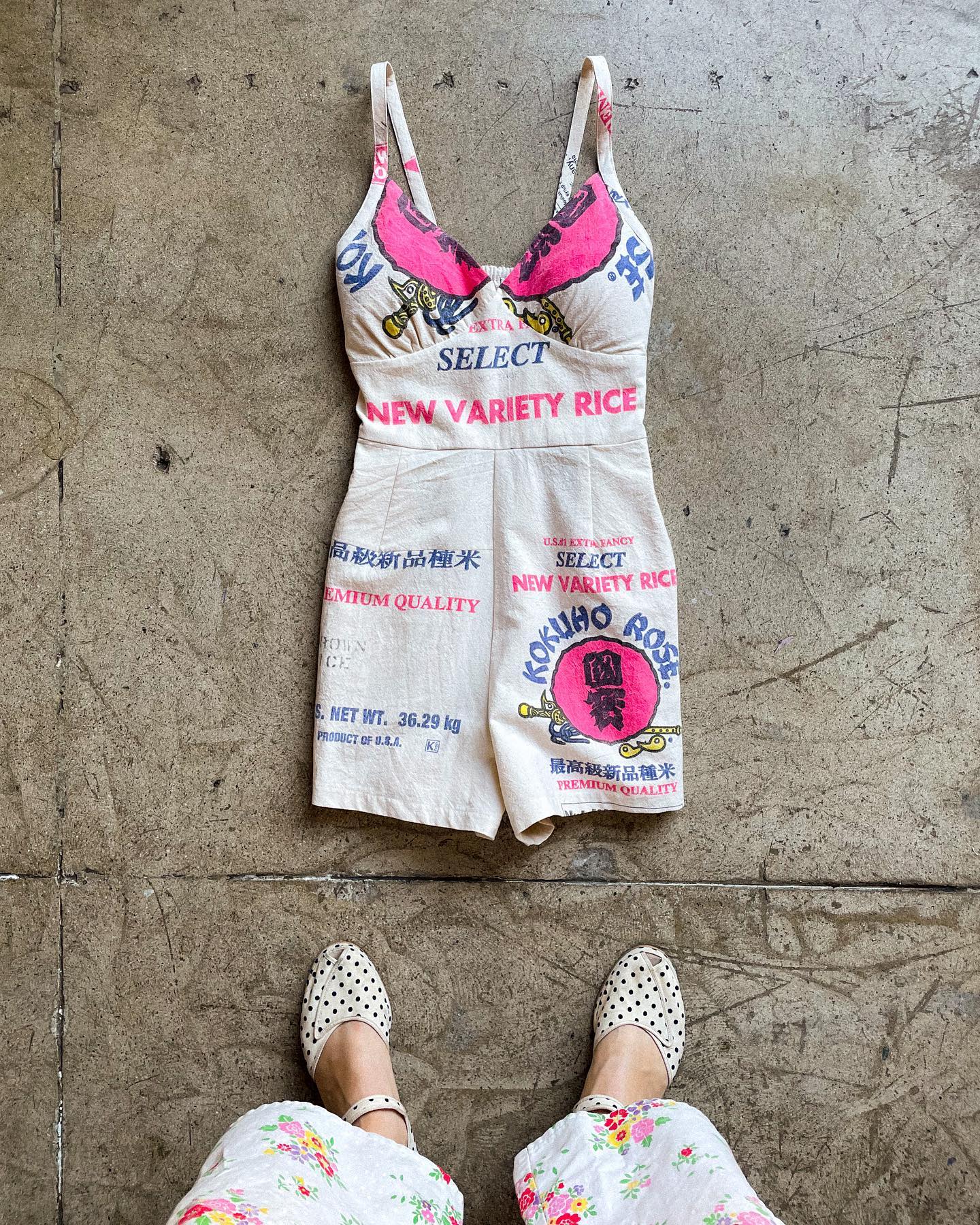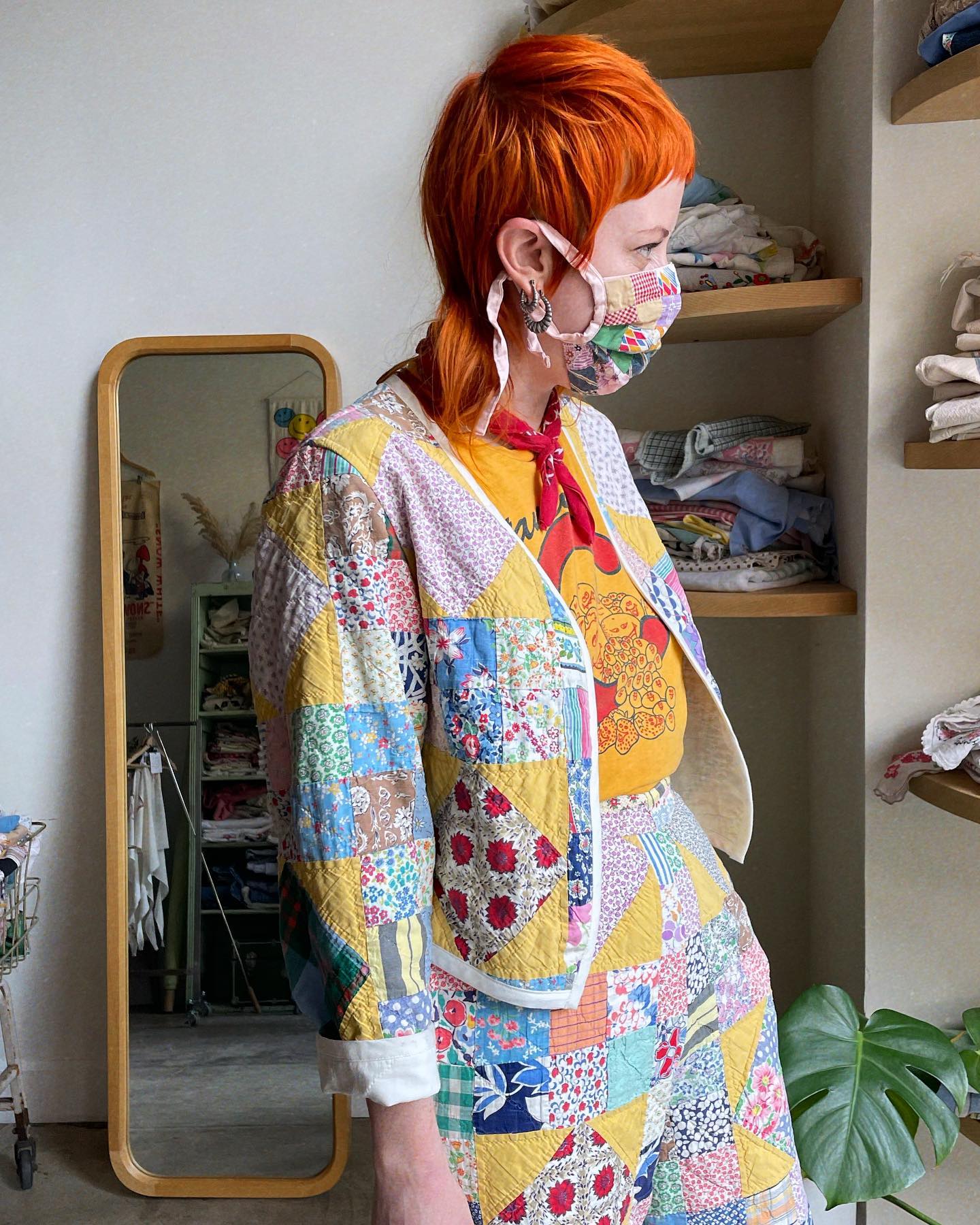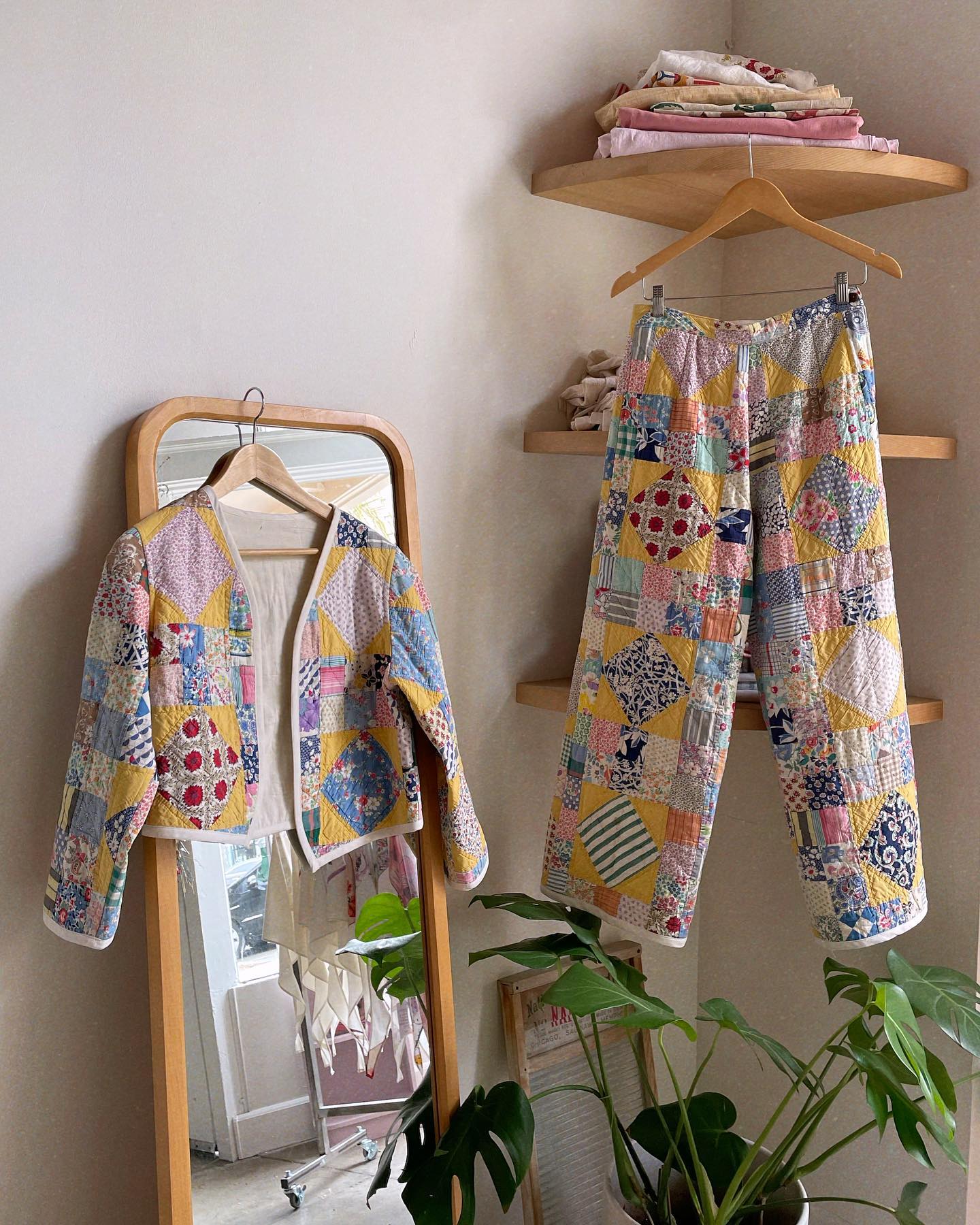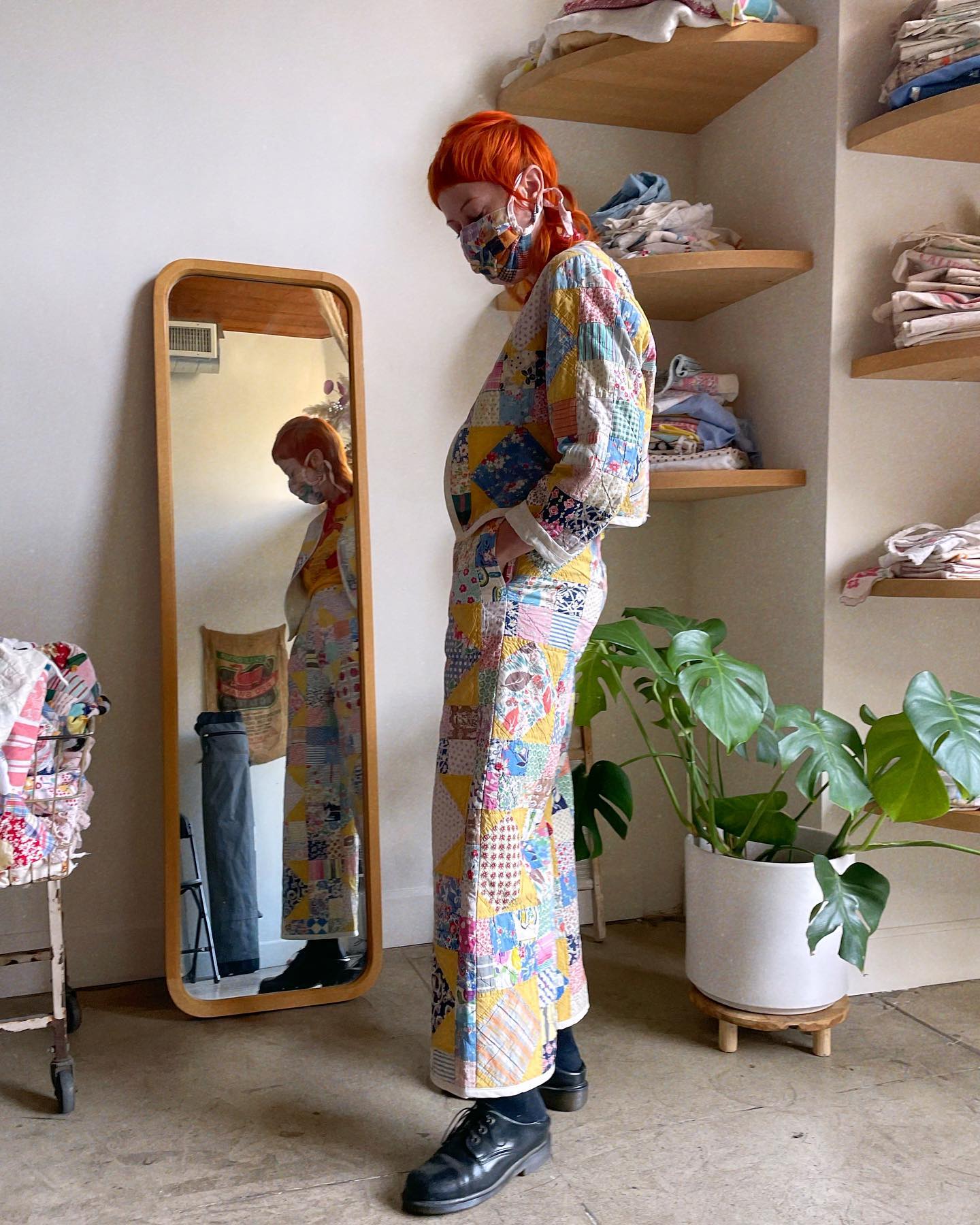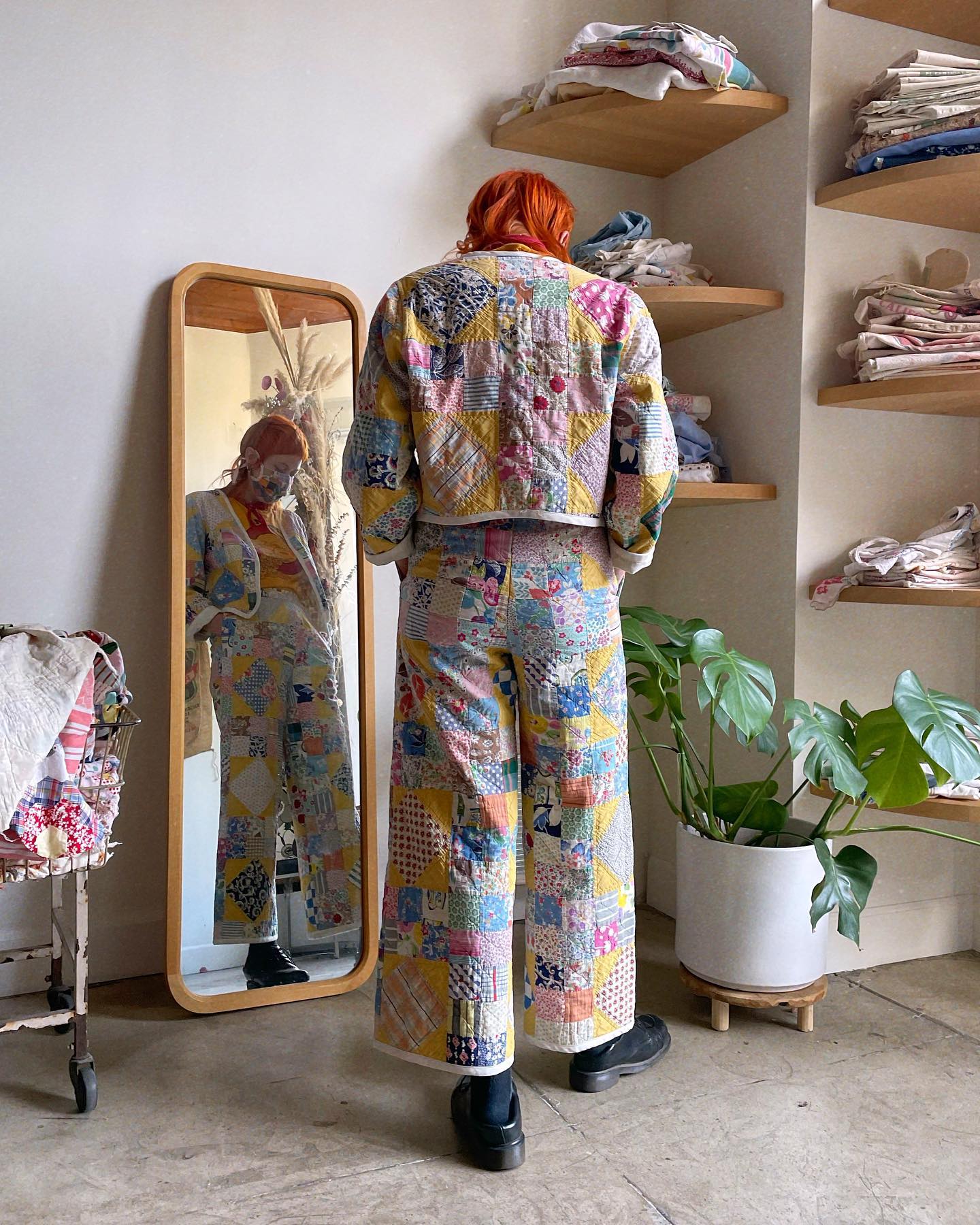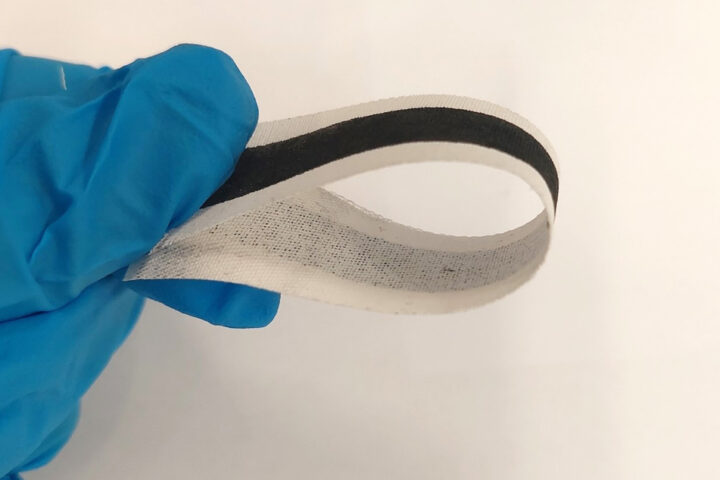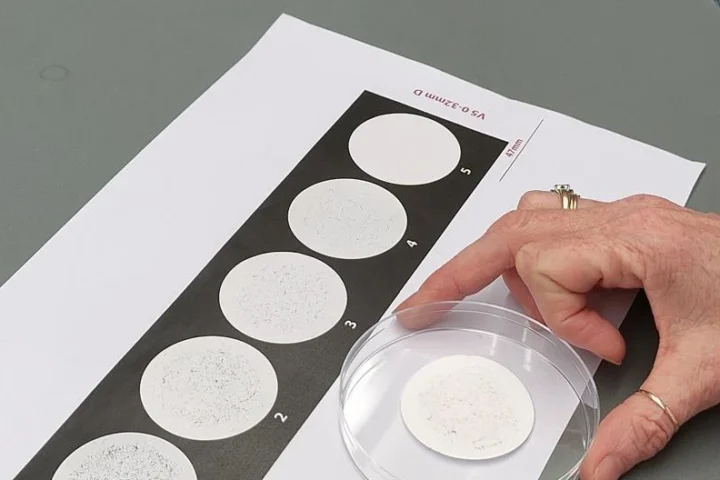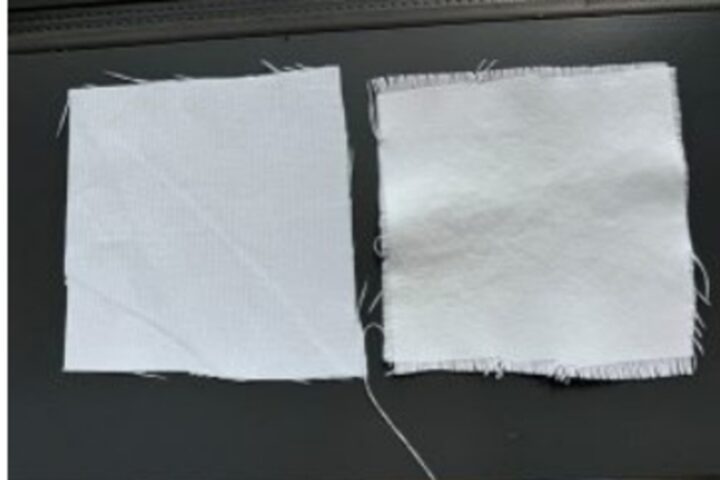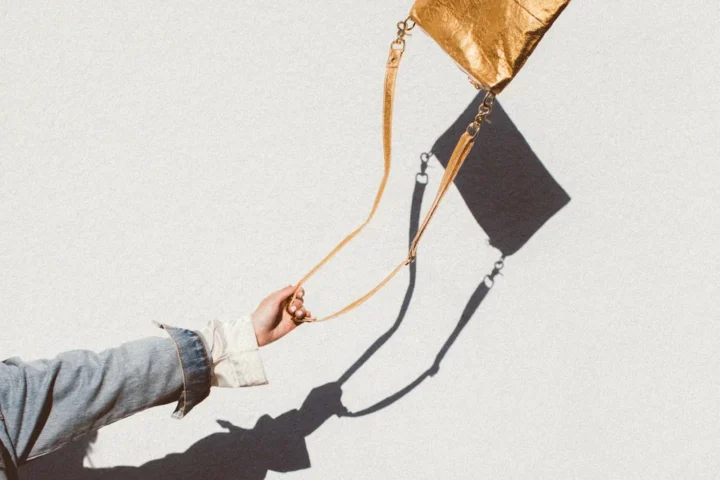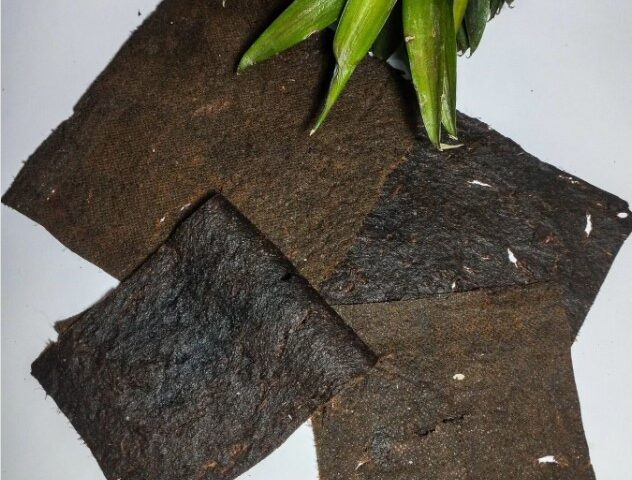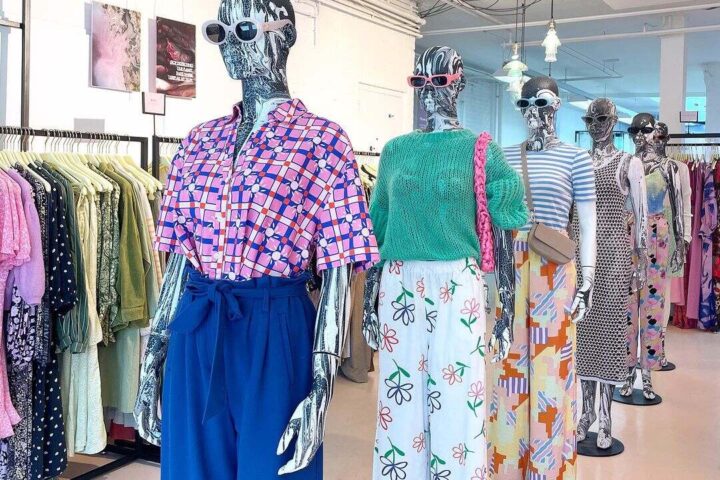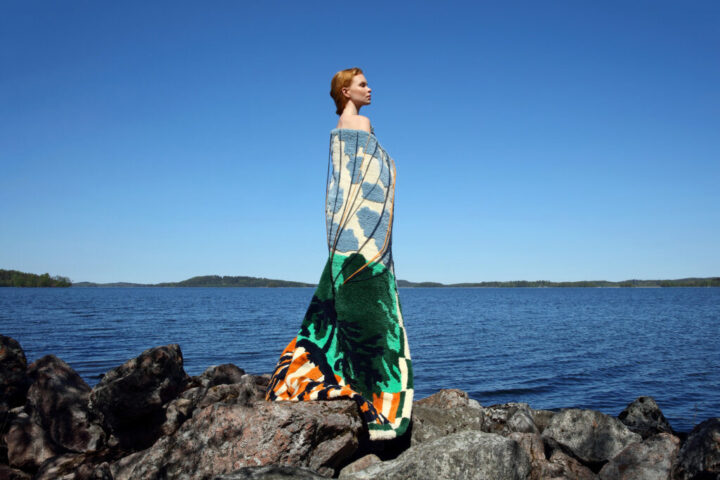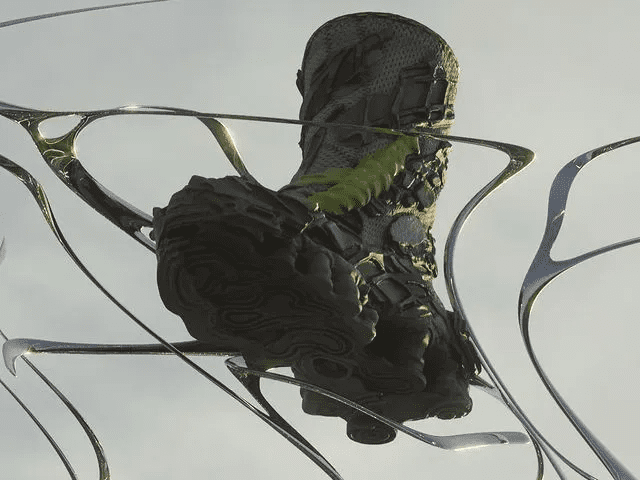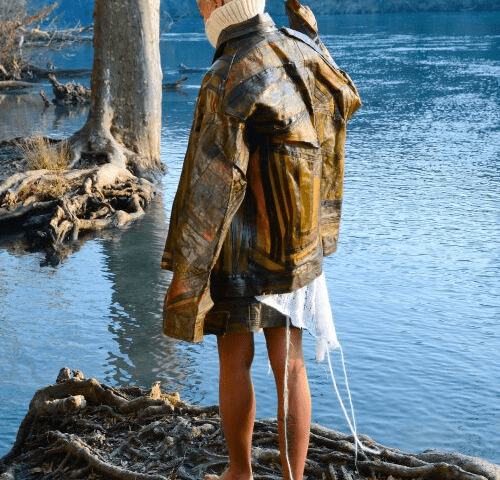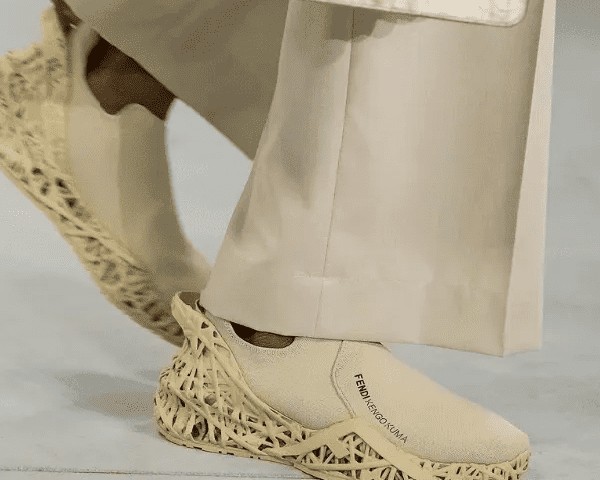Did you know that In the lush tapestry of our earthly home, the fashion industry, often mirroring the infamous oil sector, has subtly morphed into an unexpected antagonist in our environmental narrative. Engaging in a delicate dance with nearly 20% of global water pollution and flirting dangerously with toxic chemicals, it weaves a perilous tale, as highlighted by the United Nations. The garments, adorned with hidden plastics, silently release a cascade of harmful microfibers into our oceanic realms, quietly disrupting our marine ecosystems. Yet, the impact extends beyond nature’s boundaries. Peering into the industry’s shadowy depths, we uncover mountains of waste gracing our landfills, the silent cries of exploited workers, a tangle of ethical dilemmas in trade practices, and a ceaseless pursuit of ephemeral fashion trends. In a candid heart to heart with Karmactive, Natalie Mumford, a pioneering spirit and co-founder of 3 Women, shared, “It’s imperative we weave a tapestry of awareness among consumers about the true cost of fast fashion. It’s not merely about the price tag, but unraveling the intricate environmental and ethical threads intertwined within it.” Thus, embroidering conscious and sustainable fashion into the fabric of our society becomes not just a trend, but a timeless necessity.
Table Of Contents
- 3 Women: Pioneering a Sustainable Fashion Revolution
- The Genesis of 3 Women and Their Connection with Rice
- A Call for Collective Action
- The Environmental Quandary of Fashion
- Sourcing Stories, Not Just Fabrics
- The Path Forward
3 Women: Pioneering a Sustainable Fashion Revolution
Nestled in the sun-kissed valleys of California, a brand emerges, intertwining the threads of sustainability and fashion with effortless grace. They’ve sculpted a sanctuary in the fashion landscape, meticulously crafting sartorial pieces from the whispers of handpicked vintage textiles. Natalie Mumford, a co-founder, gently unfolded the tapestry of their brand’s journey and ethos with heartfelt sincerity. “Our roots entwined with a vintage clothing shop,” she mused, illuminating the brand’s organic metamorphosis from a haven of vintage attire to a beacon of sustainable fashion. The transition to textiles unfurled naturally, a testament to their profound connection with the vintage apparel universe. Mumford, with a twinkle of nostalgia, emphasized, “Adorning ourselves in second-hand clothing was always a melody of resourcefulness,” noting that embarking on a journey to sell vintage was a harmonious progression.
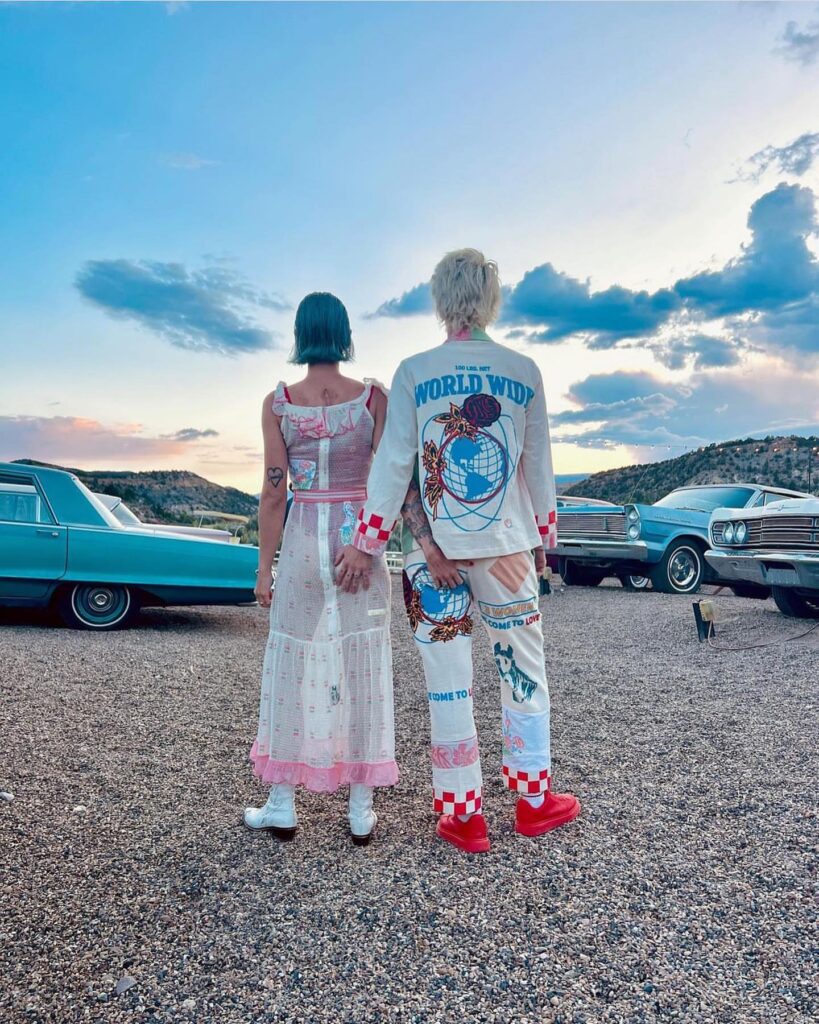
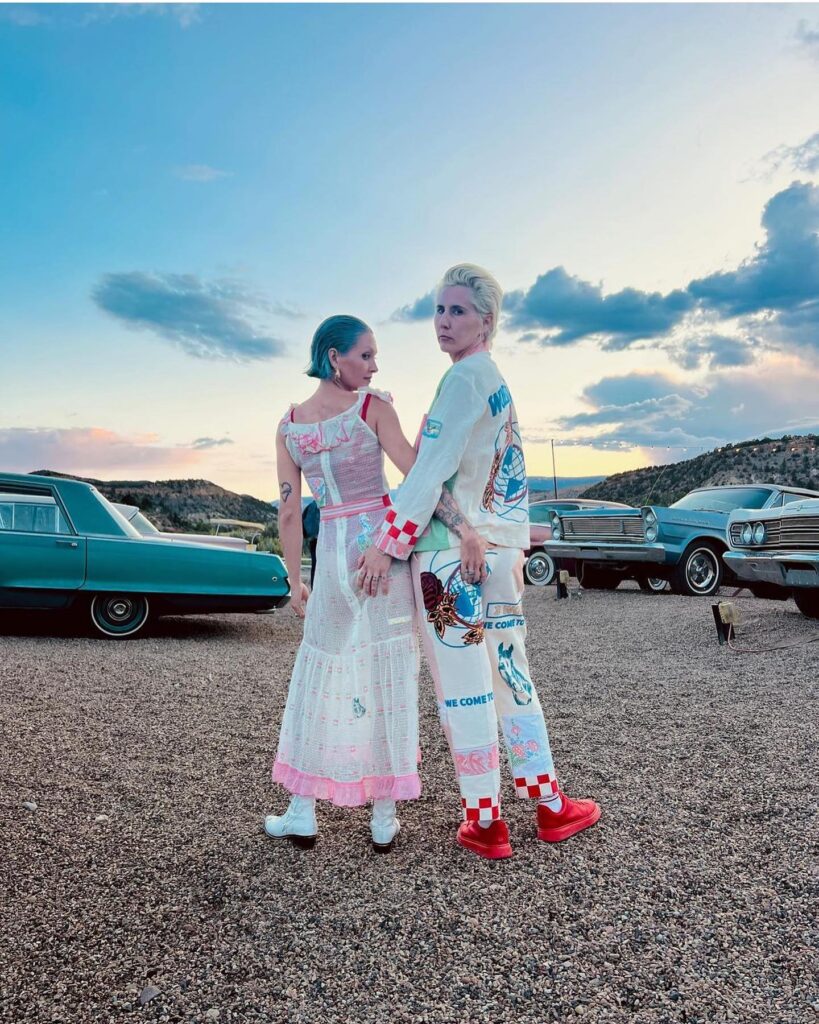

Their innovative spirit breathes life into their designs, whispering tales of creativity and sustainability. One of their inaugural creations, a jacket tenderly crafted from rice sacks, swiftly captured hearts and minds, weaving a path for their future endeavors. Their motto, “A threefold cord is not easily broken,” eloquently wraps around their belief in the robust strength of community. Mumford, with warmth in her words, elaborated, “It often takes a trio to breathe life into creation.” This ethos of collaboration is stitched seamlessly into their brand identity, with Mumford graciously tipping her hat to the invaluable tapestry of their collaborators, from the nimble fingers of seamstresses to the imaginative minds of graphic designers.
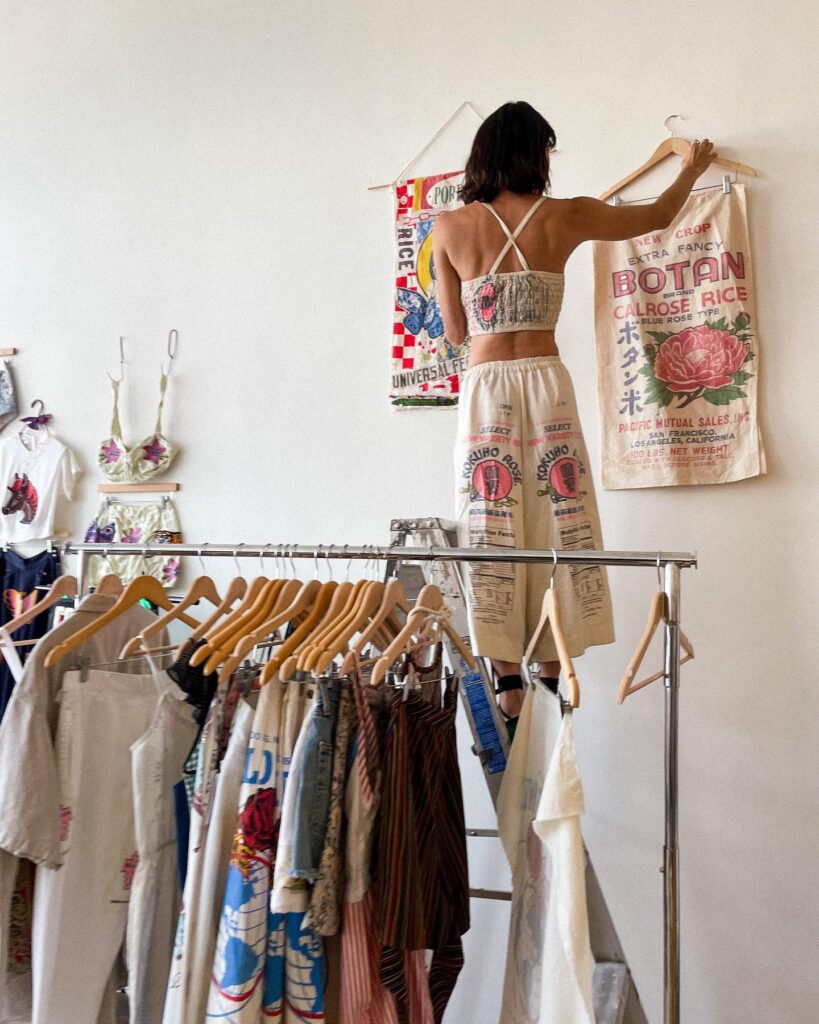
The Genesis of 3 Women and Their Connection with Rice
In the vibrant hustle of the Rose Bowl Flea Market in 2016, a serendipitous meeting at a shared booth wove the paths of Mumford and Early together, intertwining their strength and vintage-selling prowess into a tapestry rich with nature and community preservation. The founders, affectionately dubbed “3 Women,” embarked on a journey fueled by a fervent cause for sustainability and a yearning to sprinkle a positive, transformative impact upon the fashion industry. The company tenderly collaborates with a local seamstress, a pivotal artisan in breathing life into their designs. For 3 Women, collaboration isn’t merely a strategy; it’s a heartfelt key, unlocking realms of custom designs alongside their small-batch, ready-to-wear collections.
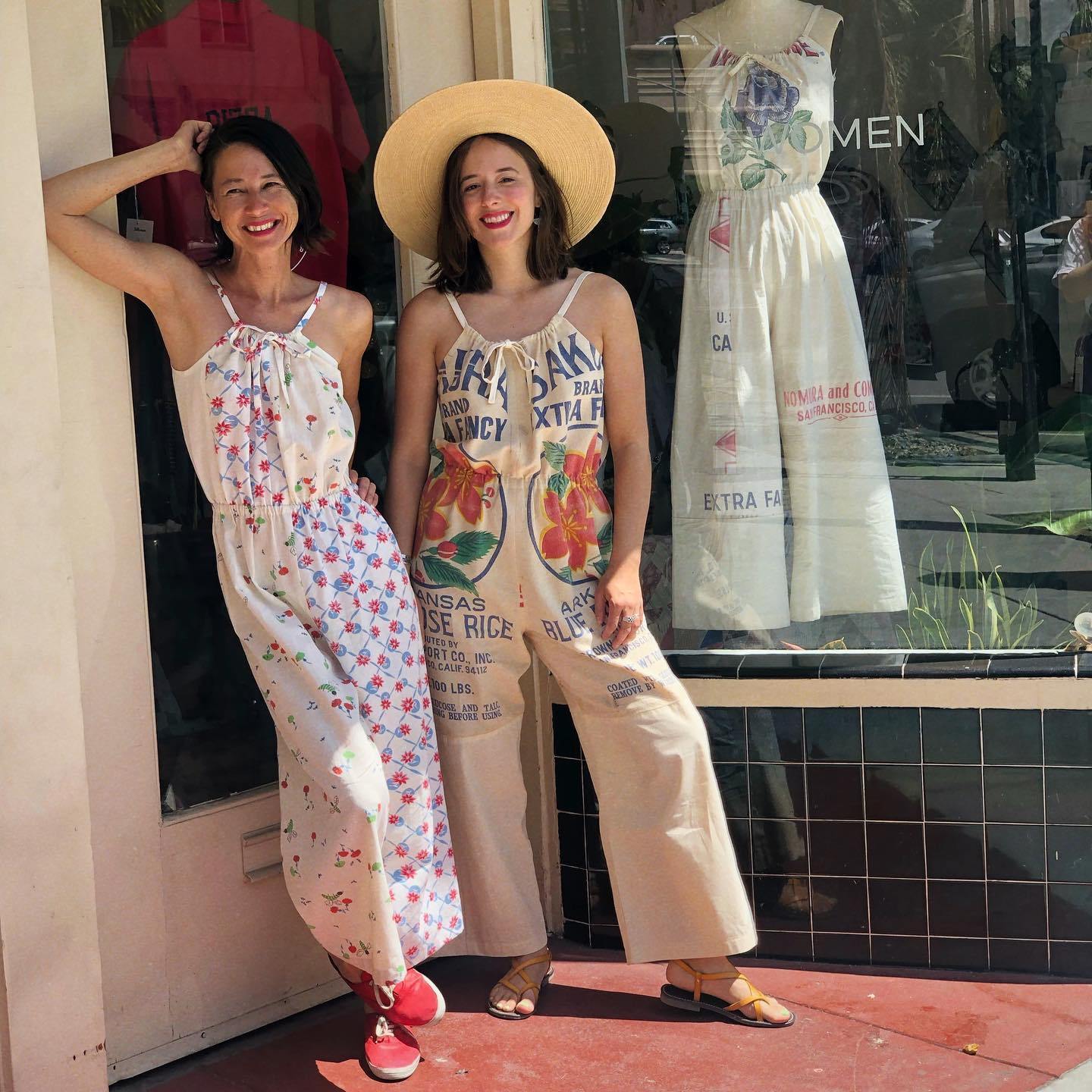
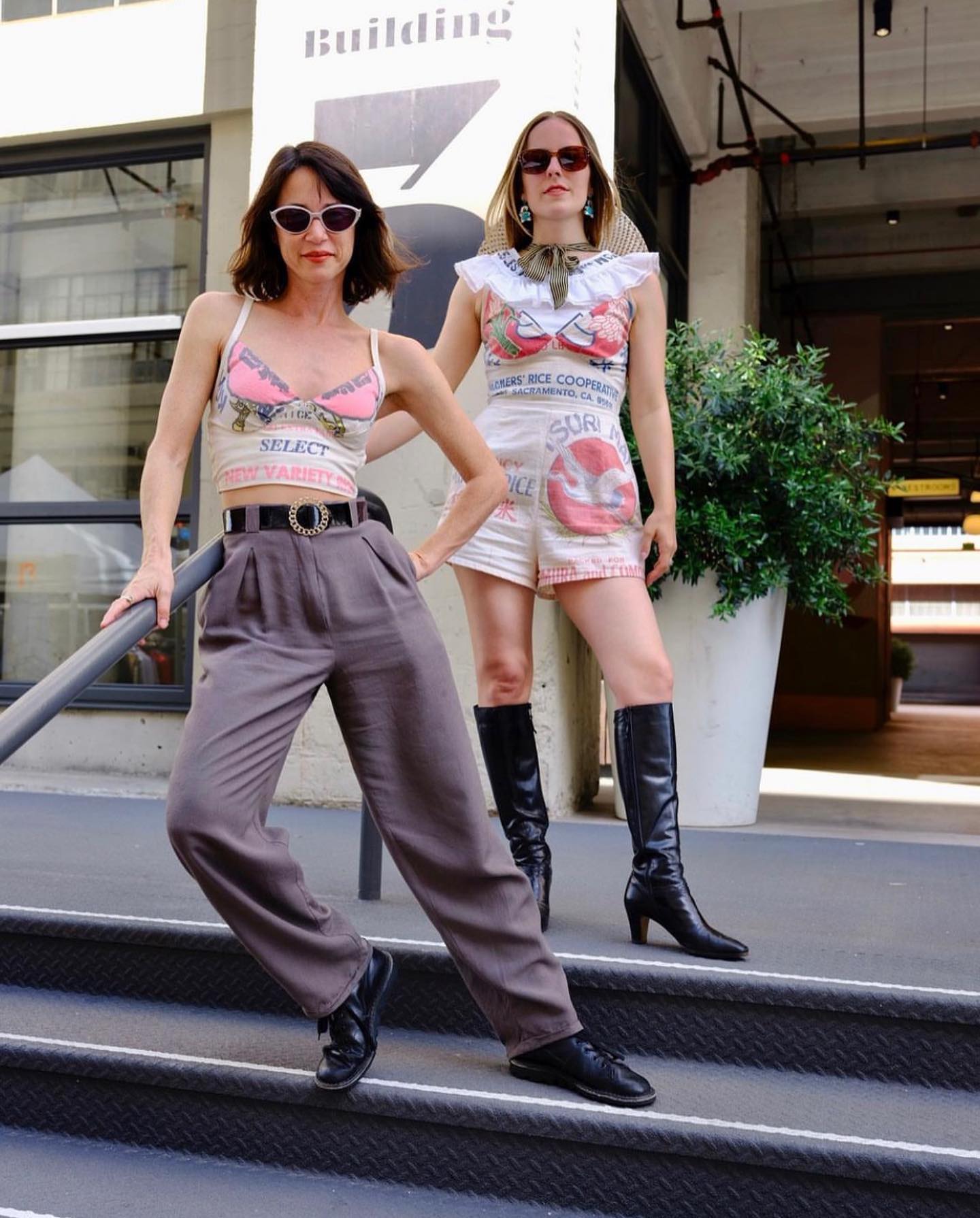
In the vibrant hustle of the Rose Bowl Flea Market in 2016, a serendipitous meeting at a shared booth wove the paths of Mumford and Early together, intertwining their strength and vintage-selling prowess into a tapestry rich with nature and community preservation. The founders, affectionately dubbed “3 Women,” embarked on a journey fueled by a fervent cause for sustainability and a yearning to sprinkle a positive, transformative impact upon the fashion industry. The company tenderly collaborates with a local seamstress, a pivotal artisan in breathing life into their designs. For 3 Women, collaboration isn’t merely a strategy; it’s a heartfelt key, unlocking realms of custom designs alongside their small-batch, ready-to-wear collections.
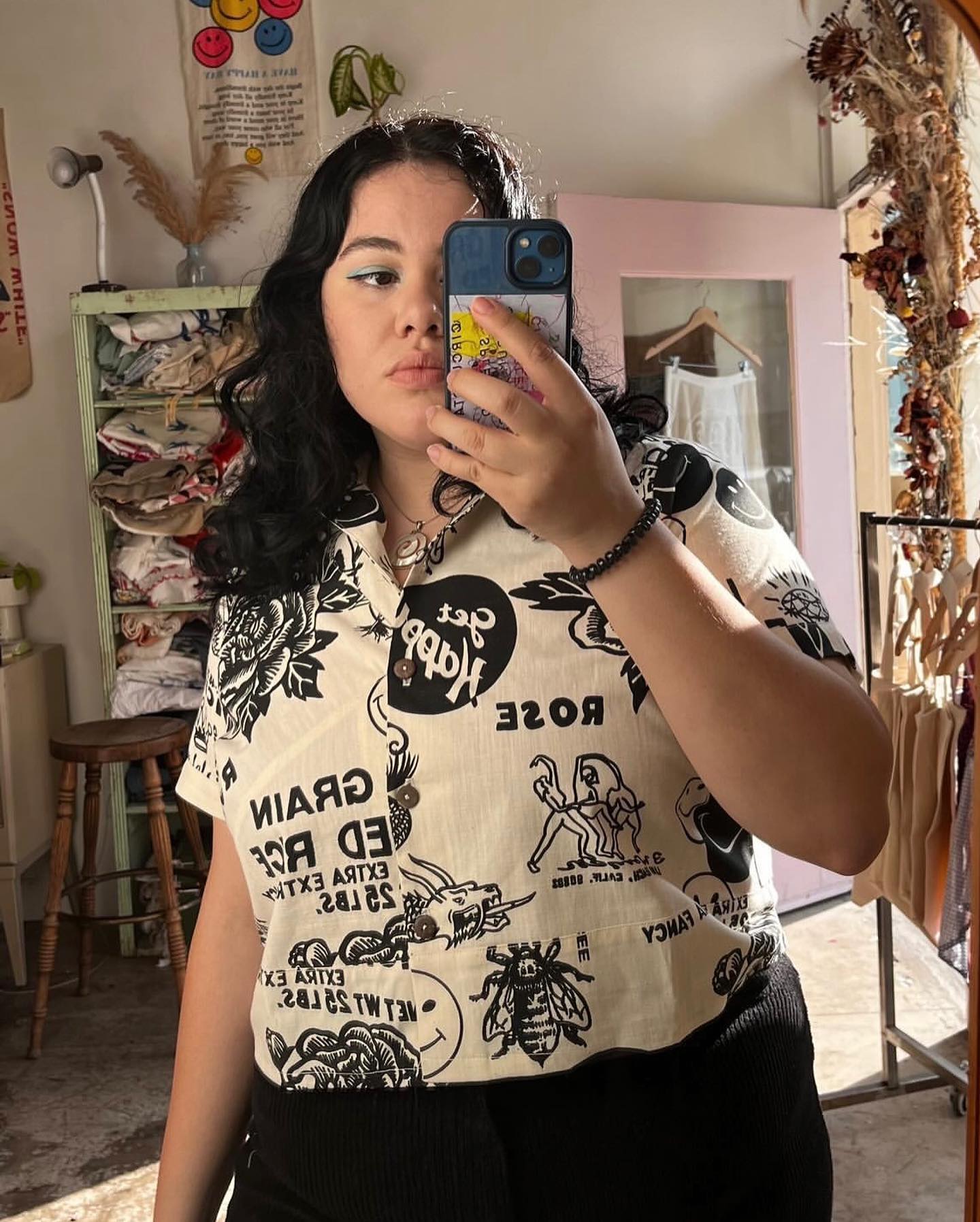
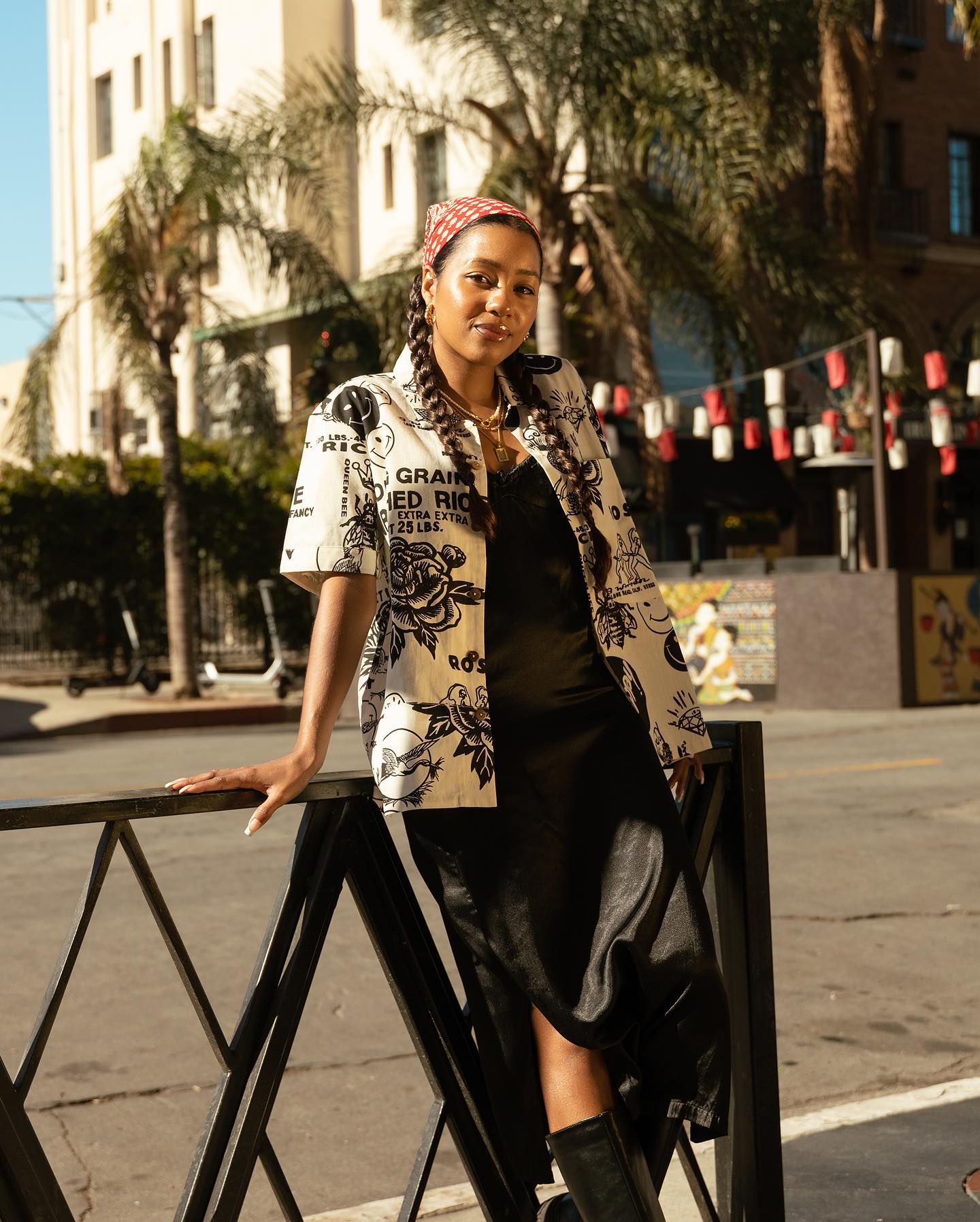
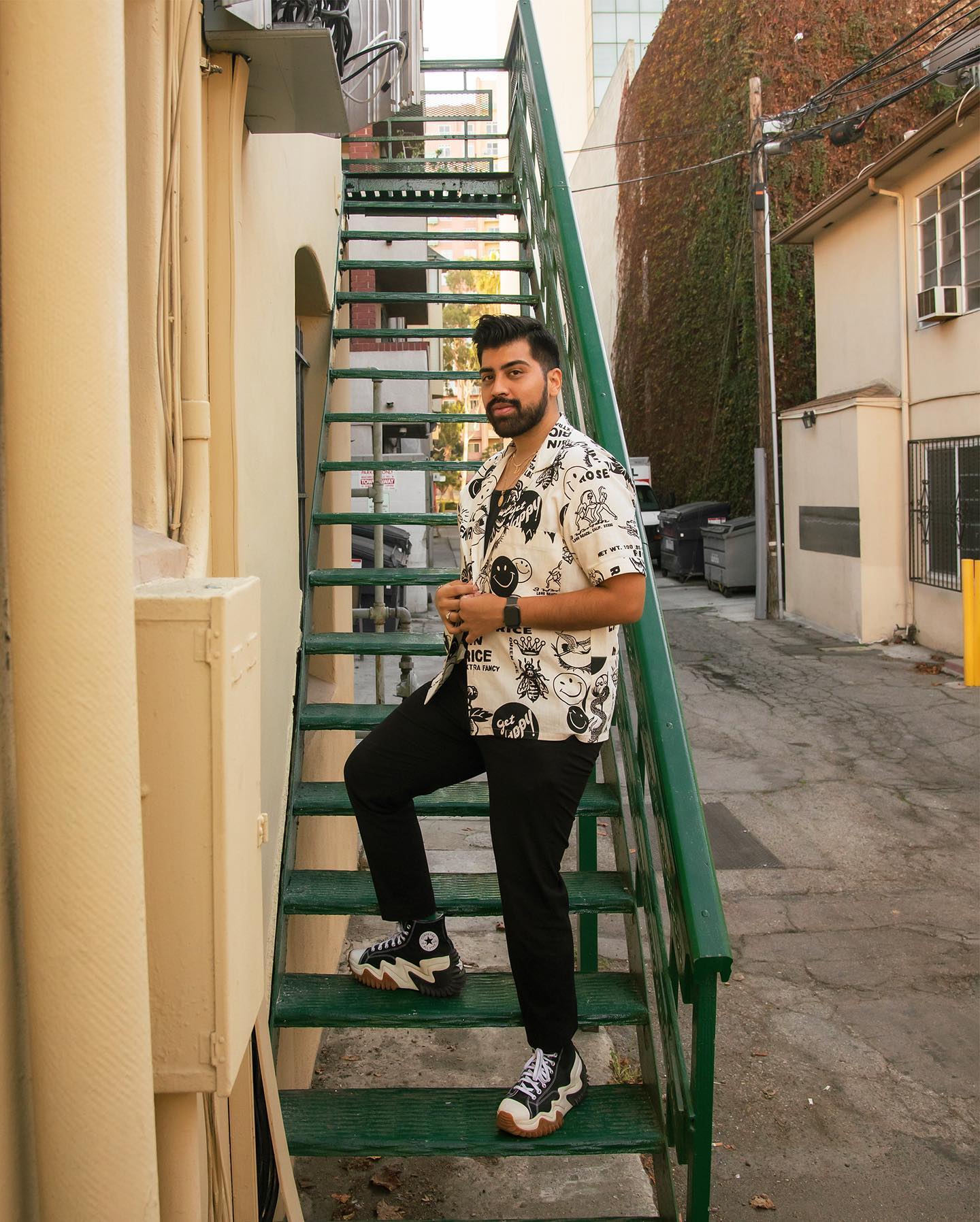
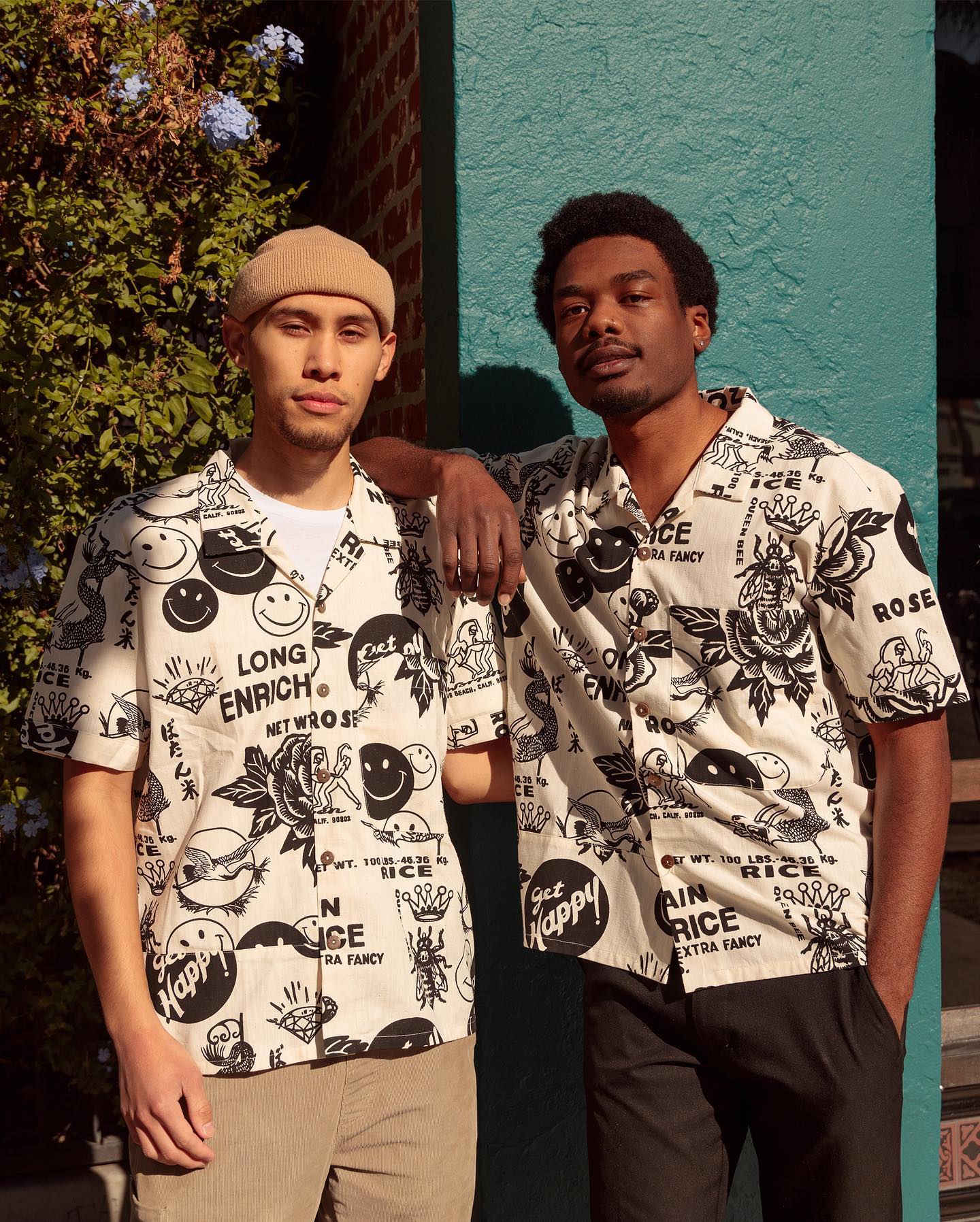
Unfazed by the intricate challenges of production, especially when they echo their enduring principles, the women of 3 Women weave a narrative of dedication, ensuring every fabric piece is cherished, leaving no thread to wander into waste. Their resourcefulness, a gentle yet potent force, is mirrored in their designs and approach. Mumford and Early, showcasing a tapestry of adaptability, often dance with limited vintage fabrics, crafting pieces that are not only unique but tell stories. “Every tiny thread can weave a sustainable tale,” Mumford stated, enveloping their brand’s philosophy. Their unwavering commitment to both environment and community is stitched with collaborations with local artists and designers, further embellishing their narrative.
3 Women is not merely a brand; it’s a movement, a gentle ripple in the fashion ocean, offering an eclectic blend of ready-to-wear pieces, bespoke creations, and high-end vintage treasures, all meticulously crafted from materials with tales of their own – vintage rice, flour, and feed sack fabrics. Founders, Crystal Lee Early and Natalie Mumford, share a unique, heartfelt connection with these materials, with rice holding a particularly special place. Their Long Beach store, blossoming from a vintage boutique in 2018, expanded its horizons, transforming potential waste into contemporary fashion tales. Early, reflecting on the rich, cultural tapestry of rice, mused, “Rice is a symphony, synonymous with culture and family.” Despite the challenges whispered by the pandemic, the brand has blossomed online, showcasing a resilience and adaptability that is not just seen, but felt.
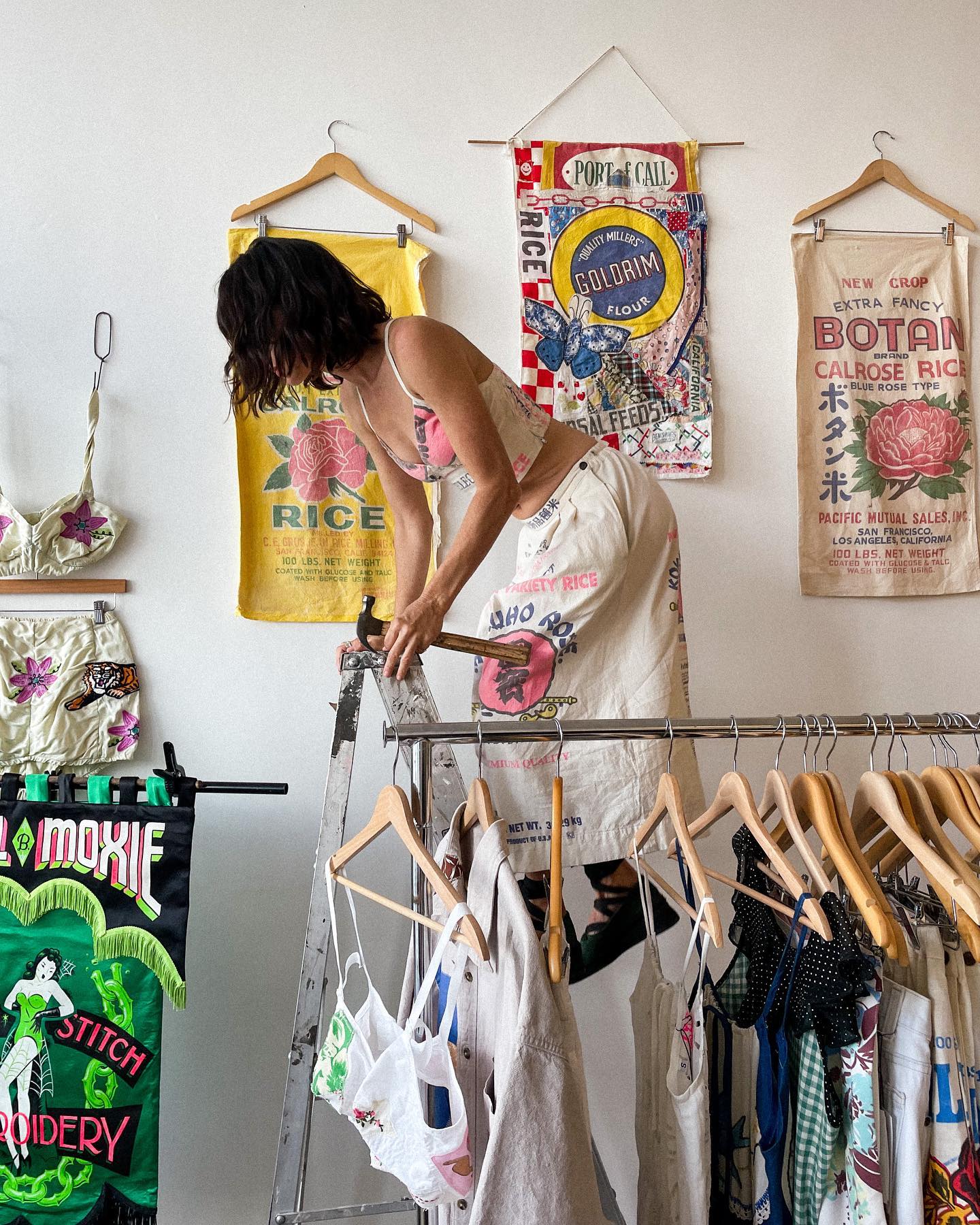
A Call for Collective Action
Embarking on a journey both transformative and influential, 3 Women has woven a tale from crafting jackets in cozy backyards to blossoming into a systematic, soulful business. Their growth trajectory, a vibrant tapestry of passion and commitment, speaks volumes. The brand ethos gently twirls around three steadfast pillars: sustainability, community, and inclusivity. Mumford, sharing with Karmactive, asserted, “Our brand name, ‘3 Women,’ is a heartfelt testament to our collaborative spirit. While we two stand at the core, there’s always a ‘third woman’ – perhaps our seamstress, our graphic designer, or another collaborator, each threading their unique touch into our creations.” These collaborations have not merely enriched their creations but have also nurtured a community, blossoming with mutual growth and shared dreams.








Moreover, 3 Women’s commitment to local skills and craftsmanship gracefully unfolds in their sourcing and production processes. They’ve always cradled a priority for working with local artisans, from seamstresses nestled just down the street from their shop to vintage textile suppliers whispering stories from within California. This approach not only ensures a tapestry of quality and authenticity in their products but also tenderly supports the local economy and caresses the environment, reducing the impact associated with long-distance shipping. “The beauty of our brand,” Natalie told Karmactive, “lies in the harmonious blend of vintage aesthetics and local craftsmanship. And that blossoms into reality through our continuous collaborations with the talented souls surrounding us.”





The beauty of our brand lies in the harmonious blend of vintage aesthetics and local craftsmanship. And that’s only possible through our continuous collaborations with the talented individuals around us.Every collaboration is a learning experience. We’re constantly inspired by the local artisans we work with, and their skills push us to think creatively and innovate. We’re proud to be a brand that prioritizes local skills. In an age of mass production, it’s these local touches that give our creations their unique identity.
Natalie Mumford, Co-Founder 3 Women
Similar Posts
The Environmental Quandary of Fashion
Once basked in the glow of creativity and dynamic flair, the fashion industry now navigates through a sea of scrutiny, its environmental footprint casting a shadow upon its once celebrated tapestry. Elegantly trailing behind the notorious oil sector, the industry has gracefully yet perilously danced into becoming a poignant contributor to global pollution, crafting a melancholy of almost 1/5th of worldwide industrial water contamination. Moreover, the chemicals, some whispering toxic tales, utilized in textile mills, weave an additional layer to the environmental burden. A particularly disconcerting melody is the prevalent serenade of plastic in garments, orchestrating a crisis of microfibers in our oceans. This environmental degradation sketches a somber portrait of an industry, whispering for more harmonious solutions.
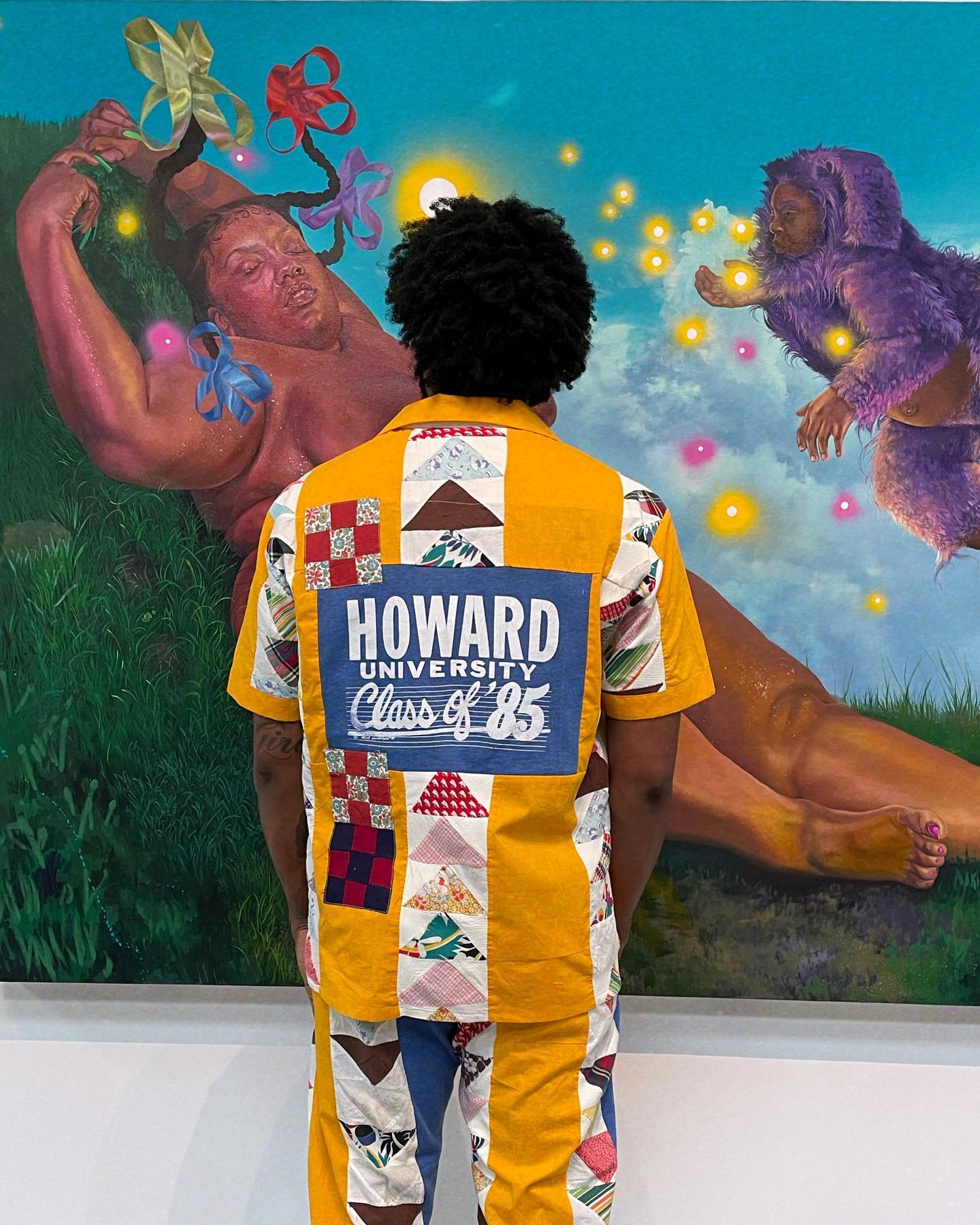
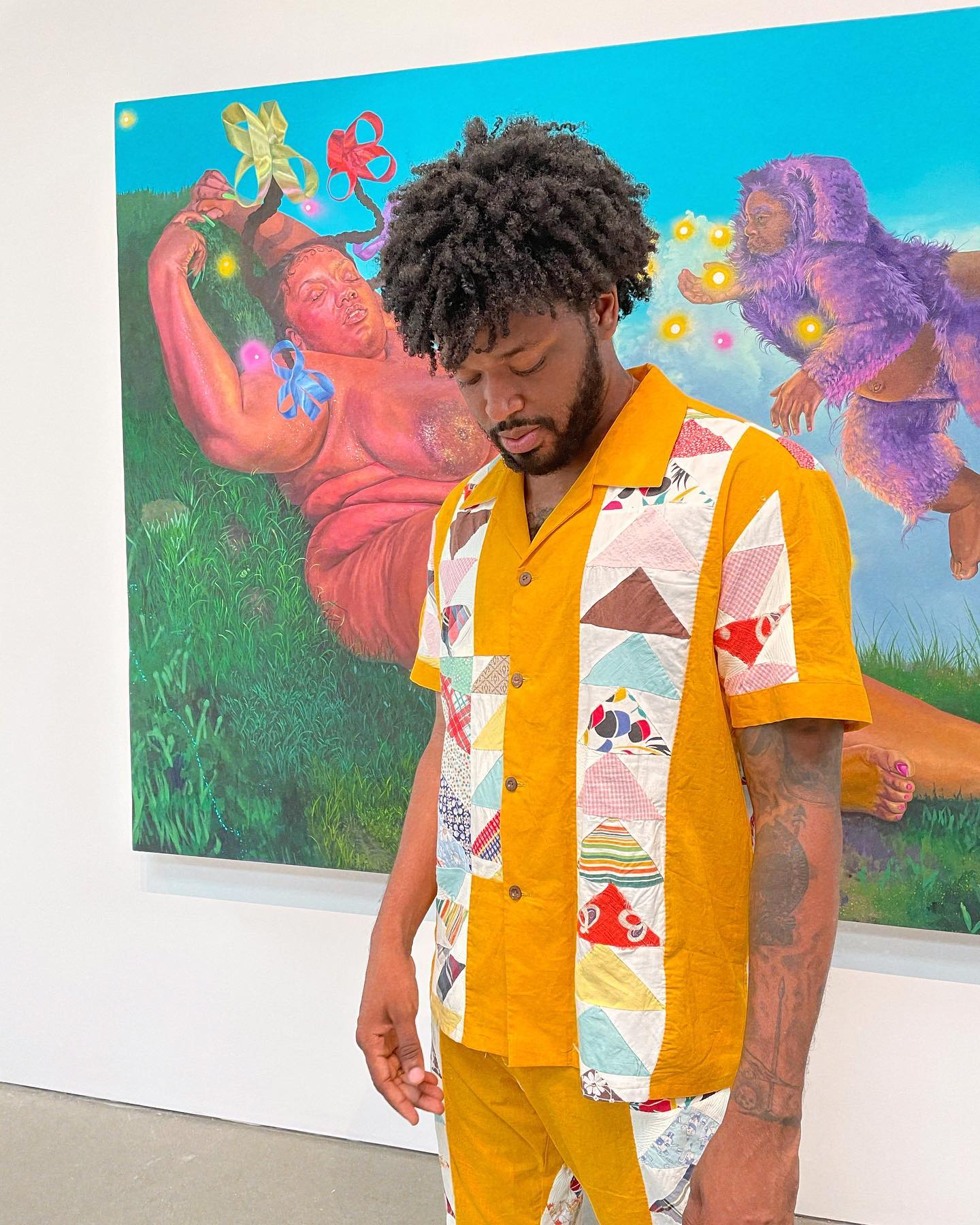
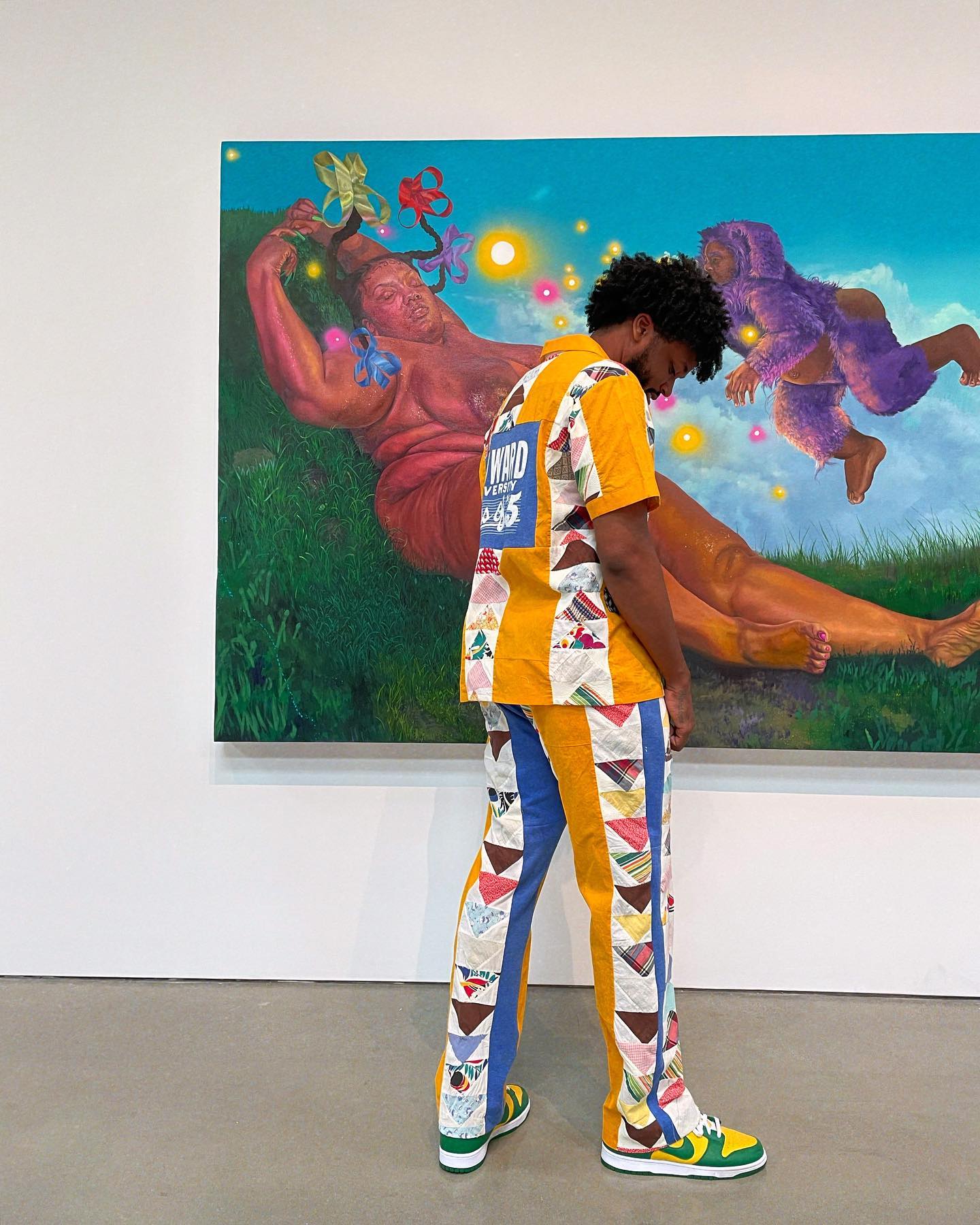
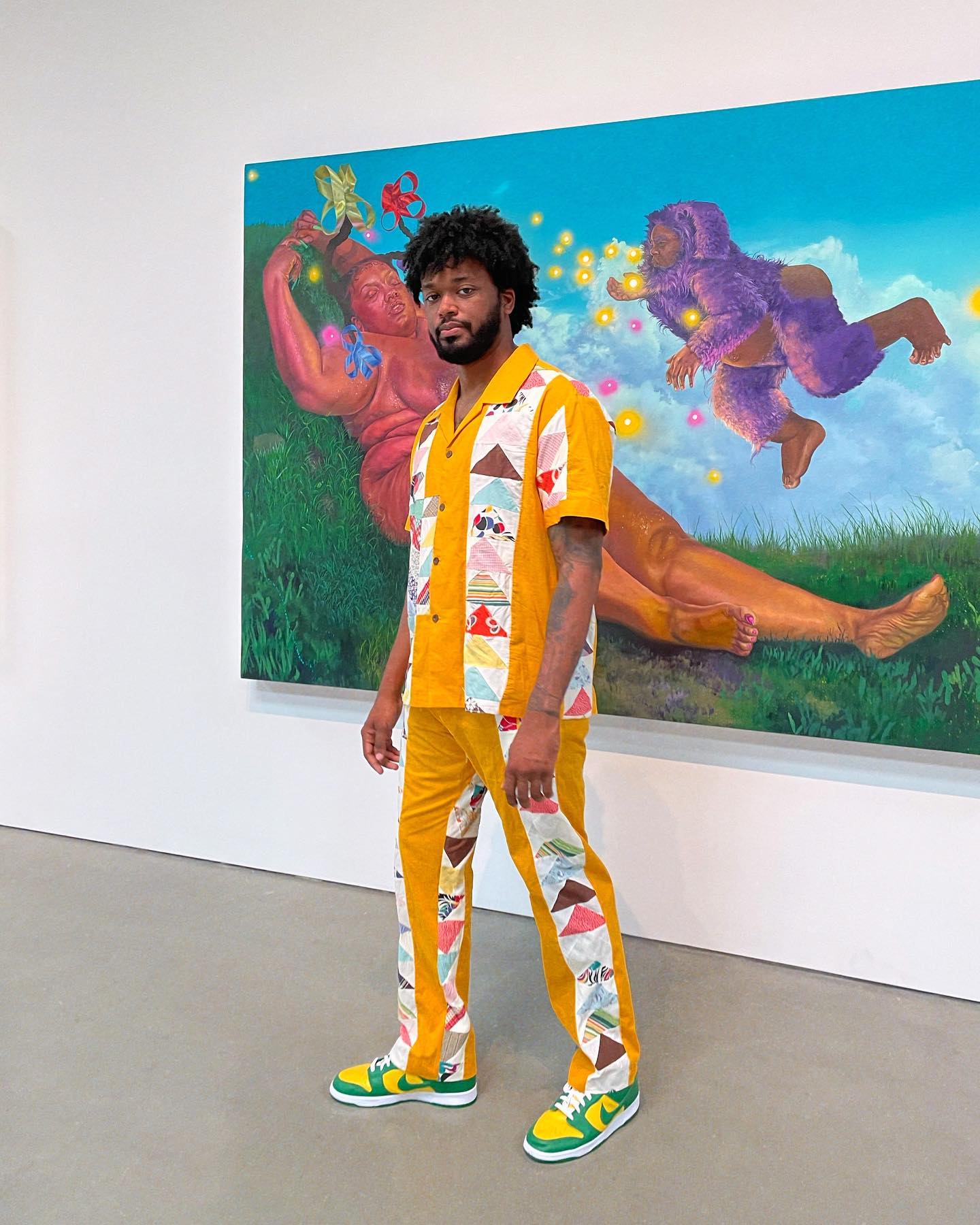
Natalie, with a gentle yet firm resolve, highlights the transient nature of fast fashion, observing, “People are donating modern clothes because they don’t last,” and noting the appearance of brands like Shein in thrift stores, a testament to the ephemeral life of such garments. Mumford also emphasized the U.S.’s disconnect from landfill issues and the pressing need for a more eco-friendly approach to fashion. She eloquently describes the ground situation with “Out of sight, Out of Mind,” a phrase that softly yet poignantly echoes the prevailing sentiment. Through their endeavors, 3 Women aims to weave sustainable fashion into a tapestry that’s not only more accessible but also community-focused and inclusive, crafting a new, vibrant standard for the industry.
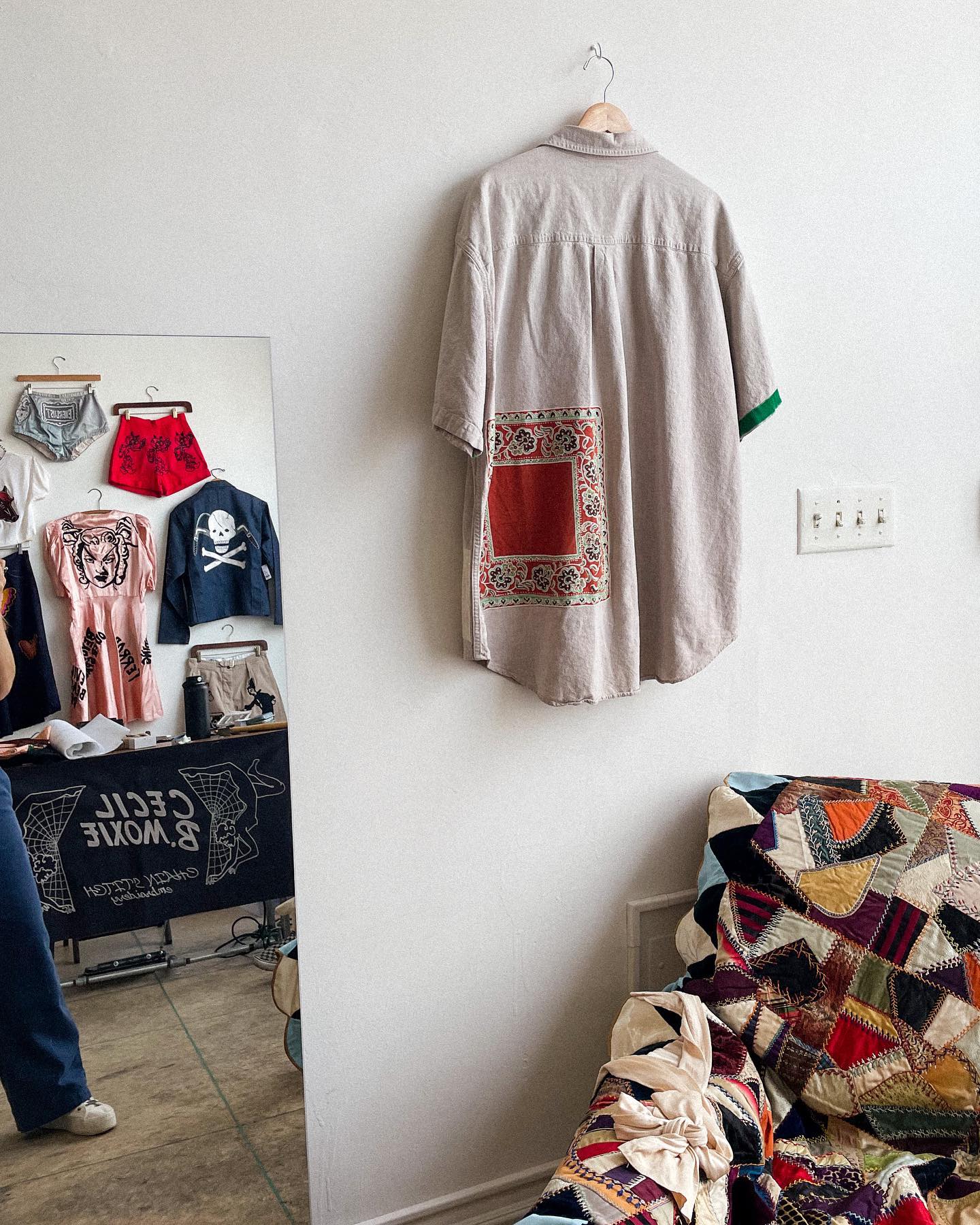
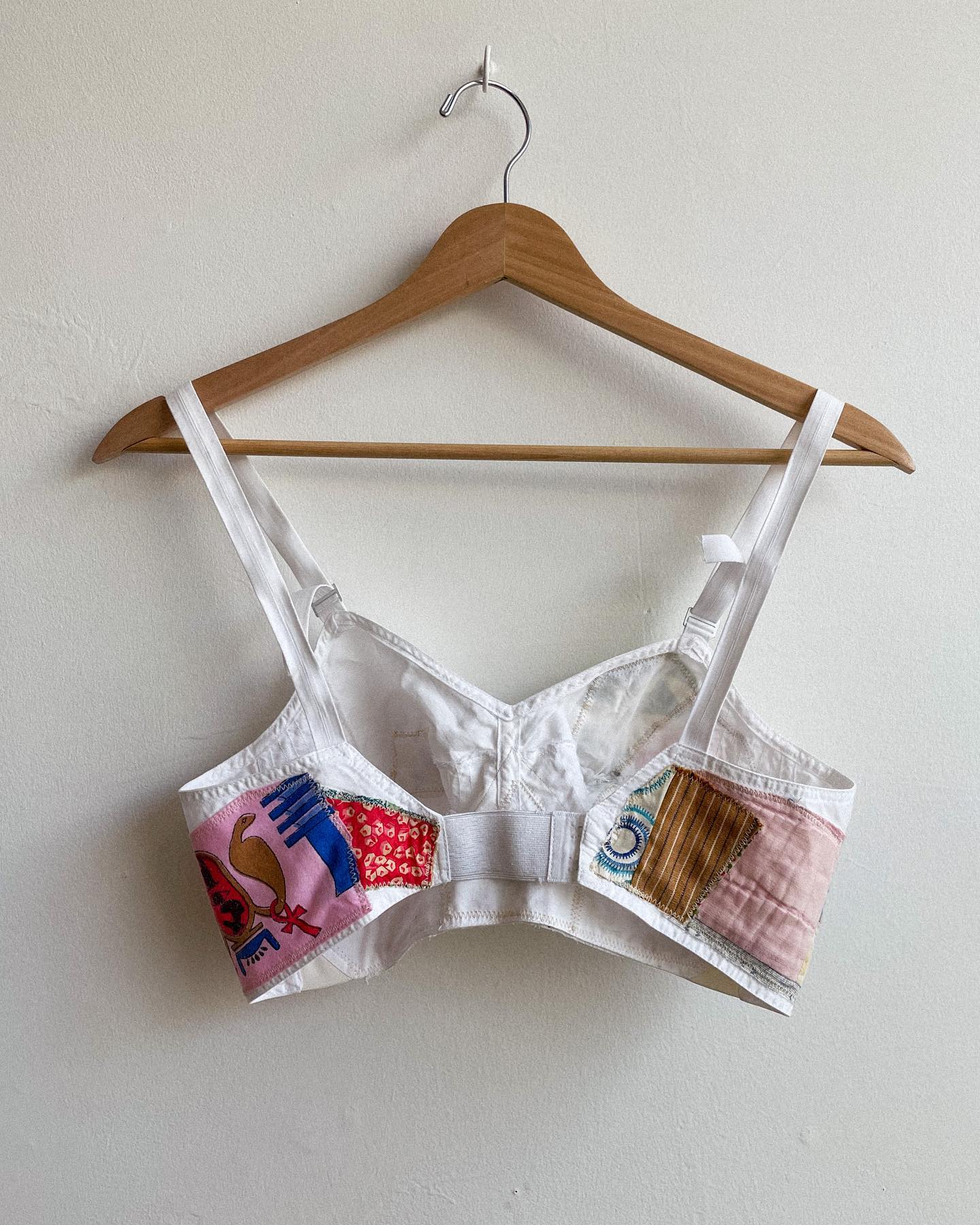
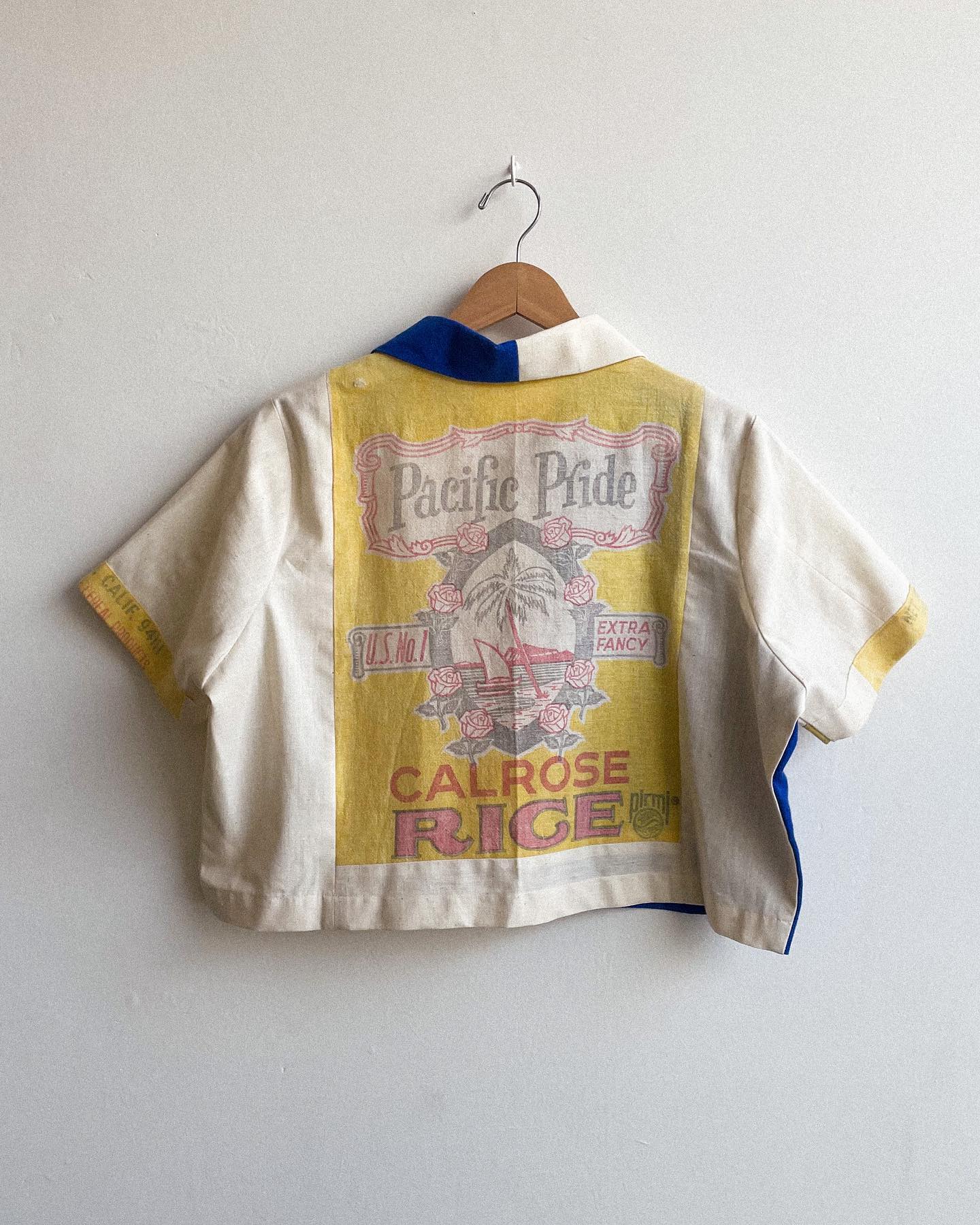
Sourcing Stories, Not Just Fabrics
The fashion industry, with its elegant yet ephemeral creations, casts a concerning shadow with its carbon footprint, as a significant tapestry of used clothes finds its final resting place in landfills, whispering further strains upon our delicate ecology. 3 Women, with a gentle yet firm stance, champions the reincarnation of vintage fashion, gracefully sidestepping the environmental pitfalls entwined with new textile production. Acutely attuned to the fleeting whispers of fast fashion, Mumford reflects, “Modern clothes find themselves donated simply because their threads don’t stand the test of time.”
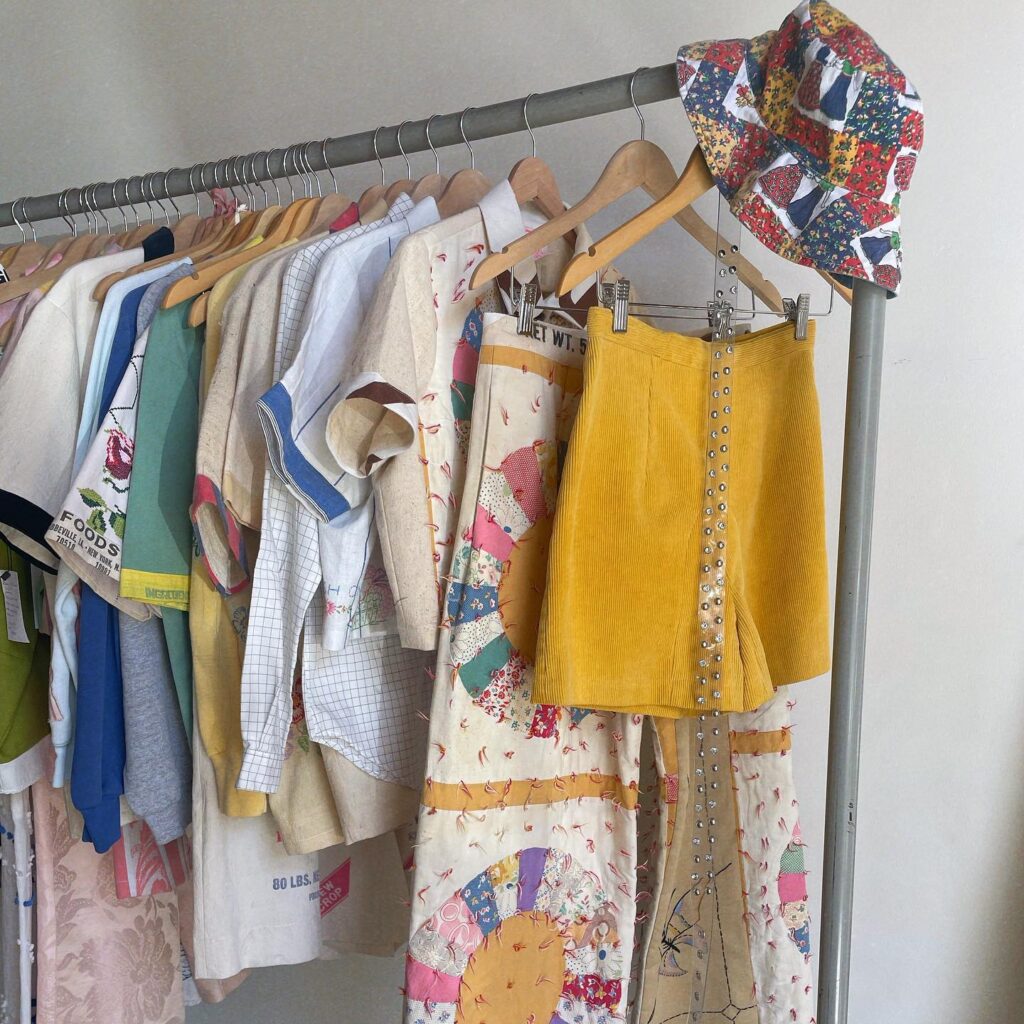
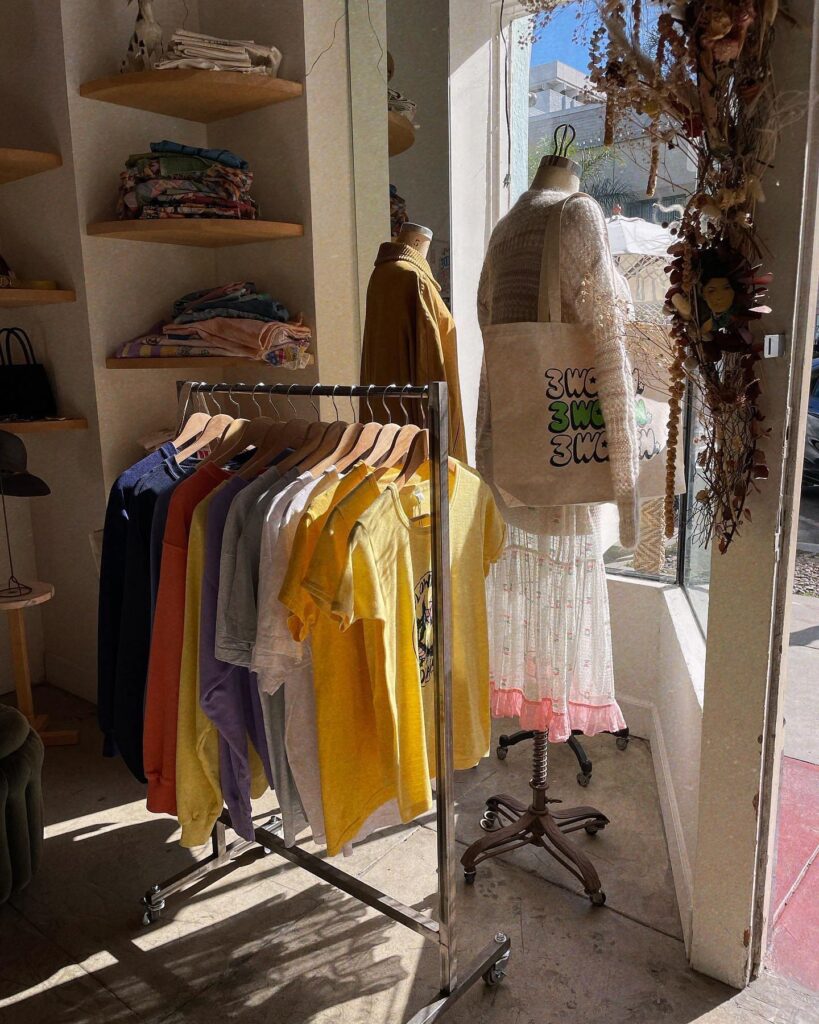
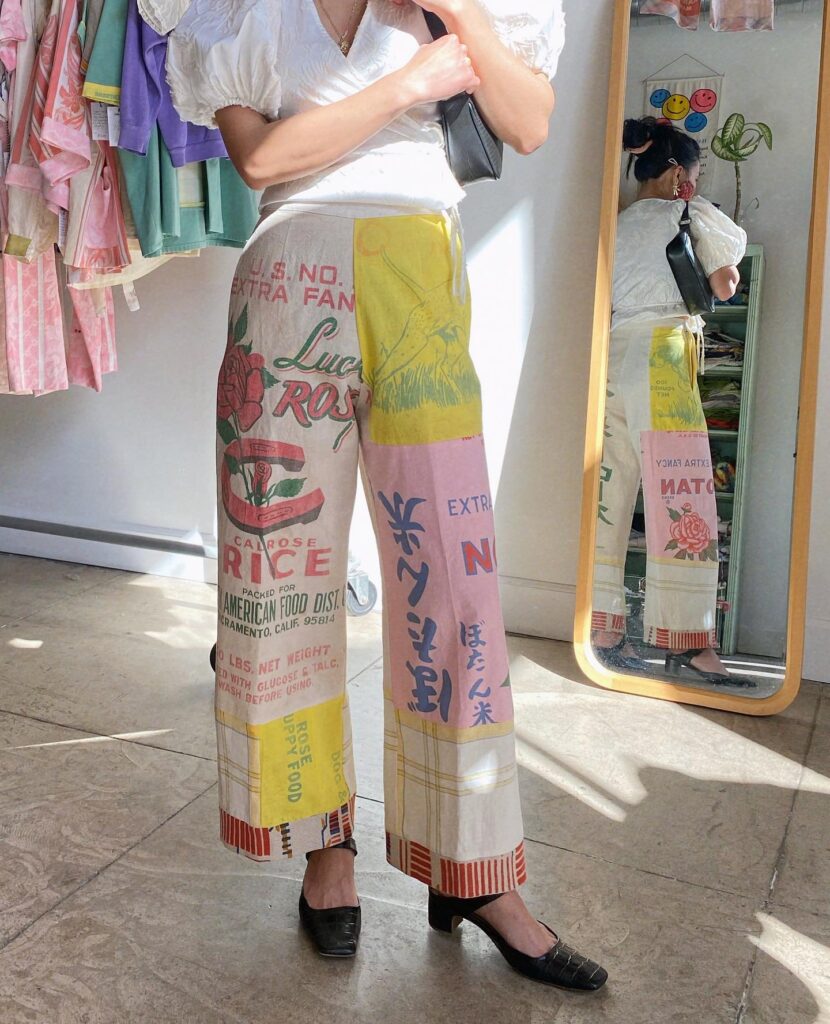
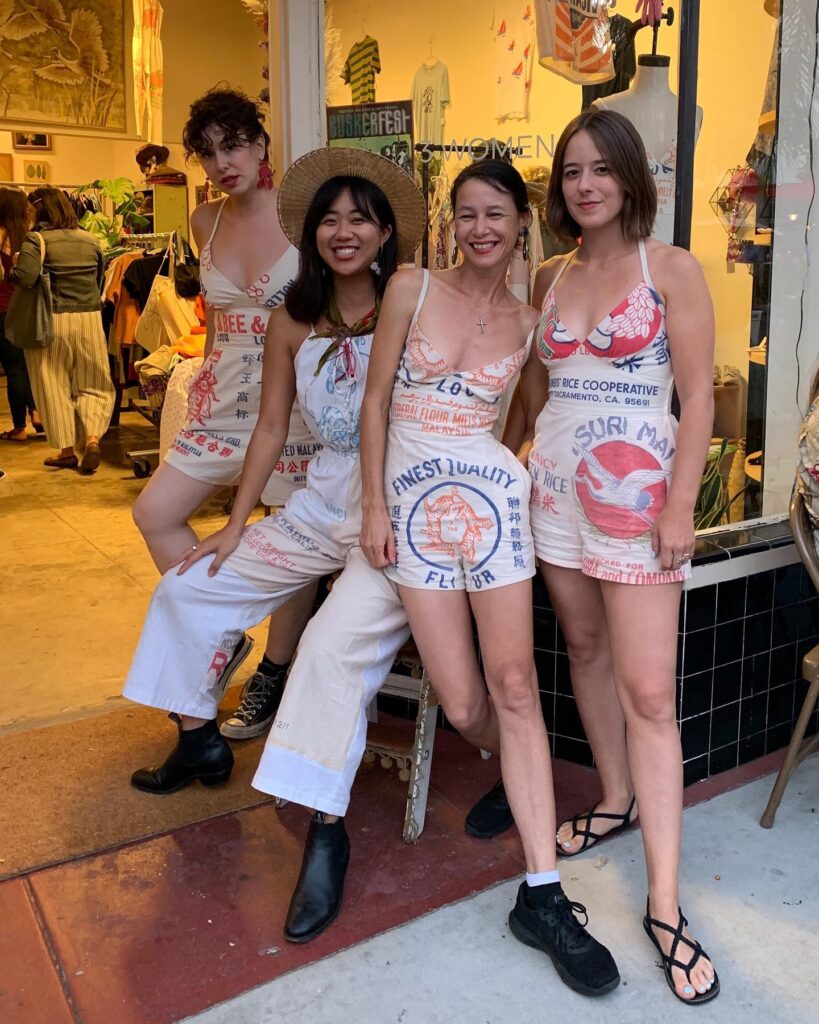
The journey of Natalie and Crystal Lee Early began with a heartfelt passion for second-hand clothing, which naturally blossomed into the idea of breathing new life into vintage textiles, crafting new, unique fashion tales. Over the years, they’ve danced through flea markets, estate sales, thrift stores, and garage sales, with Natalie sharing, “Being cradled in California, we’re blessed to be in what I lovingly term the ‘mecca of flea markets.’ This has been a treasure trove, unearthing unique textiles that echo with our brand’s ethos.” Their sourcing process is not merely a quest for materials; it’s a journey of discovering stories and histories, delicately woven into the fabrics, which they then lovingly reincarnate through their designs.
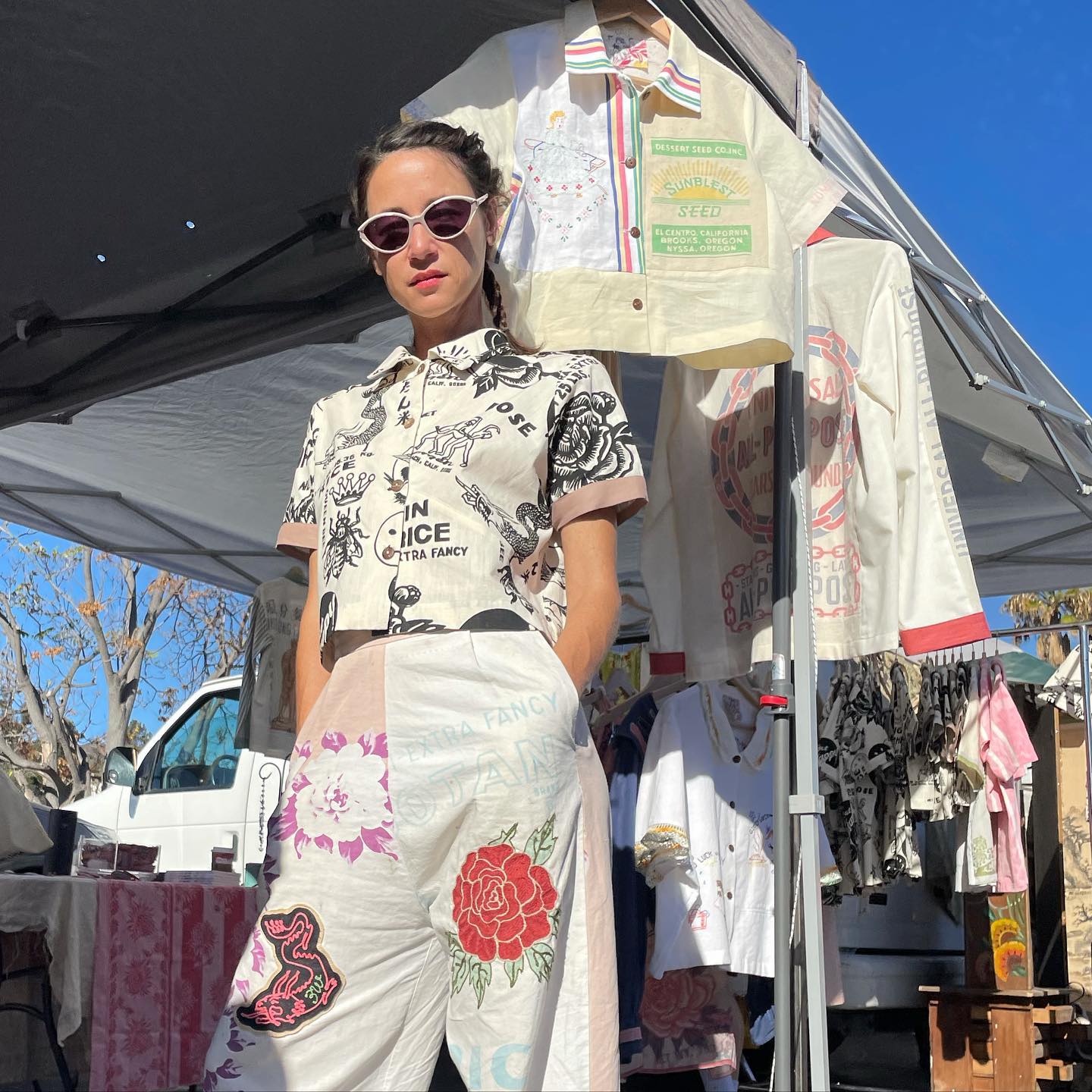
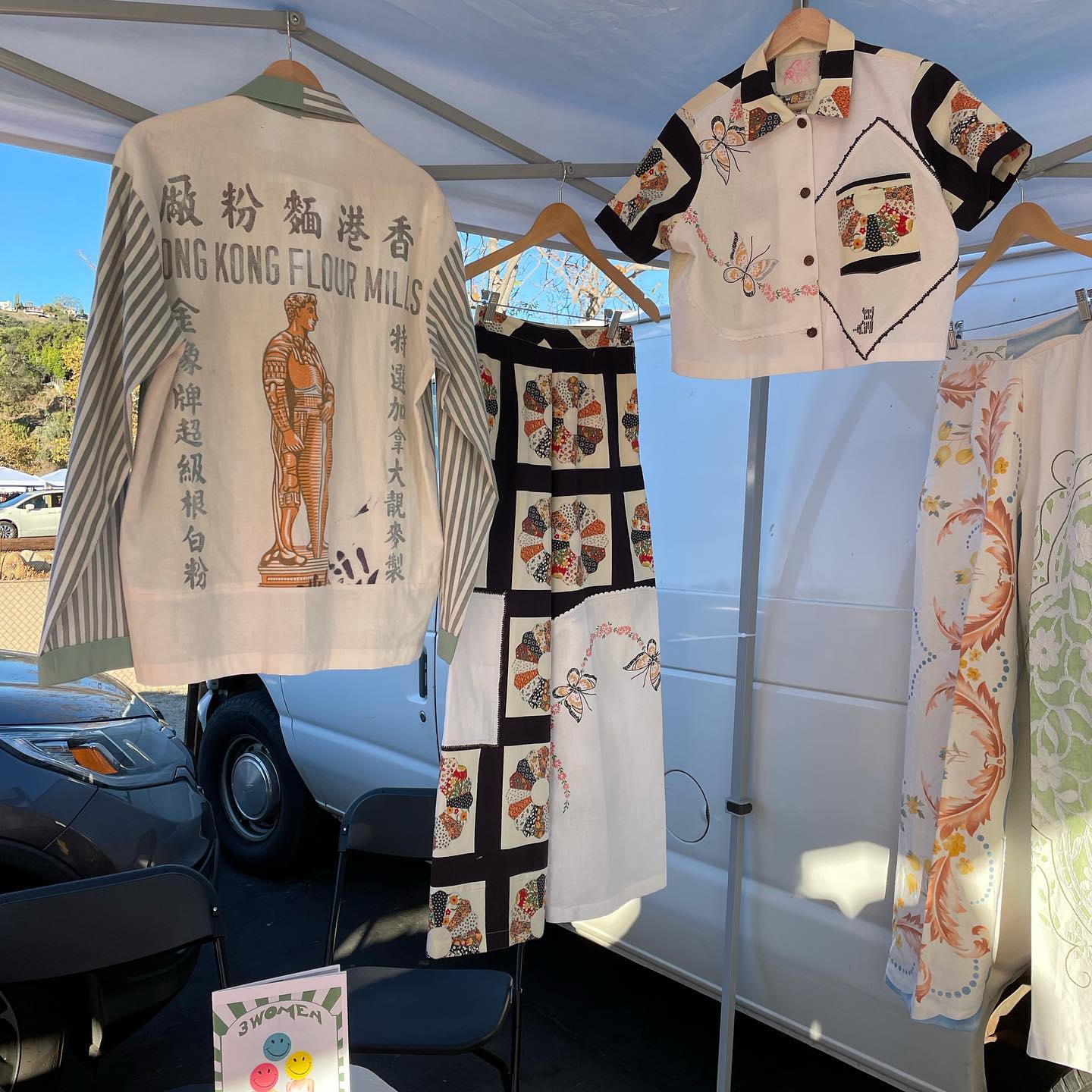
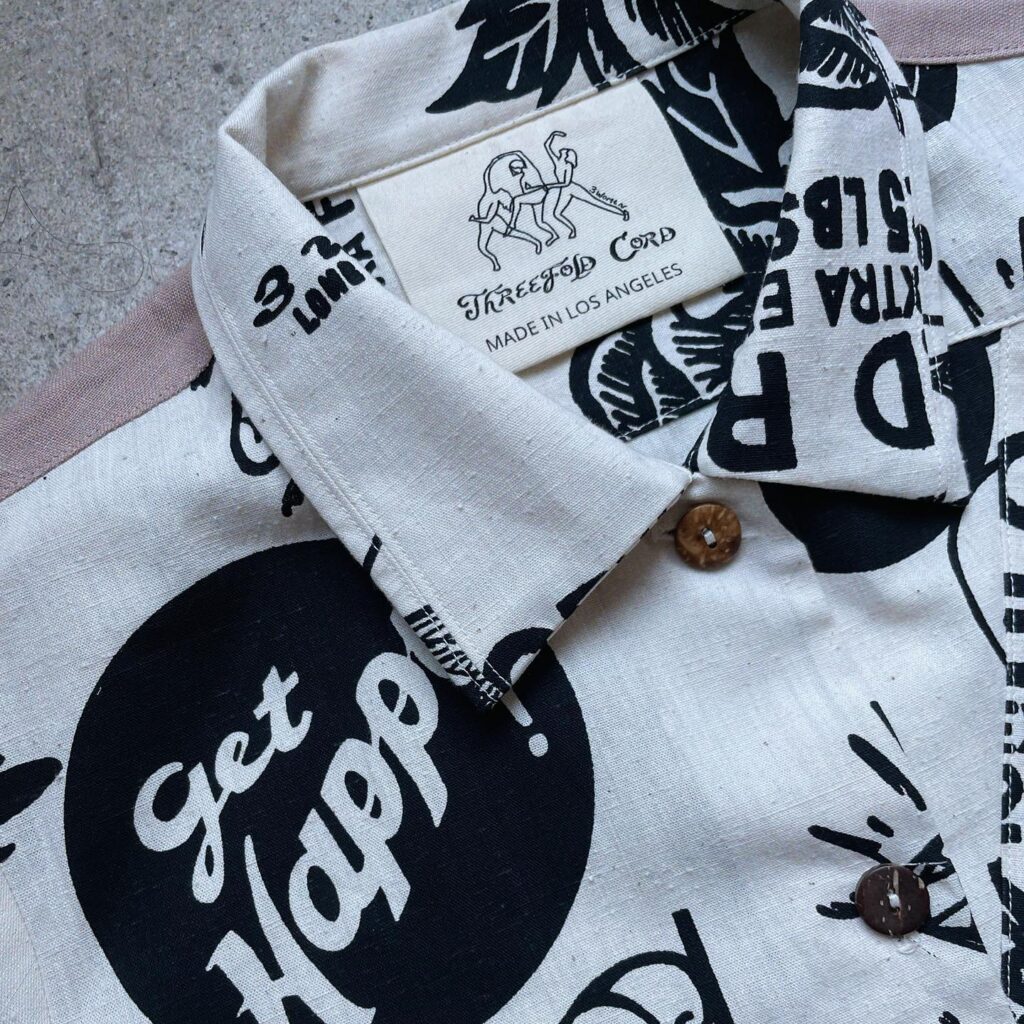
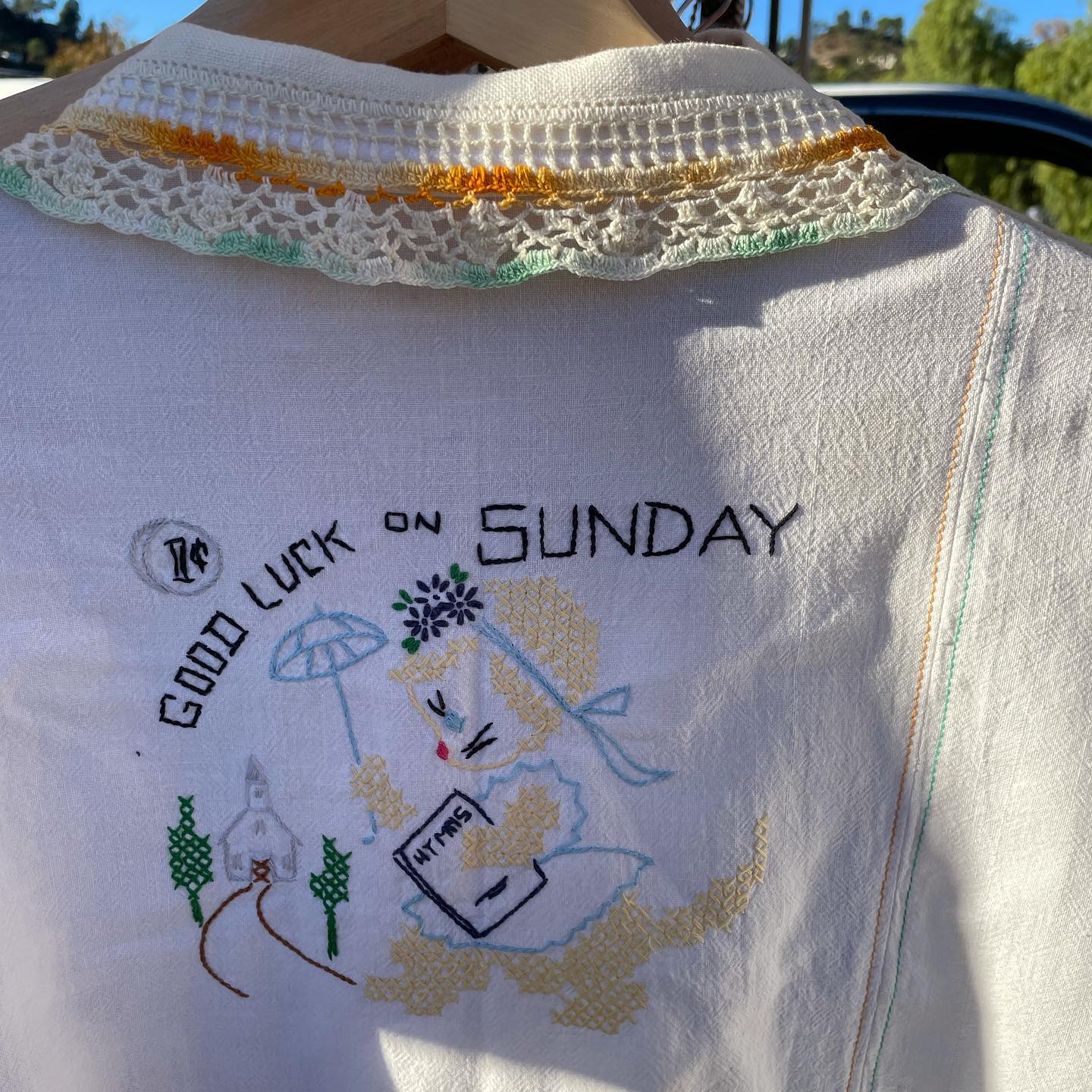
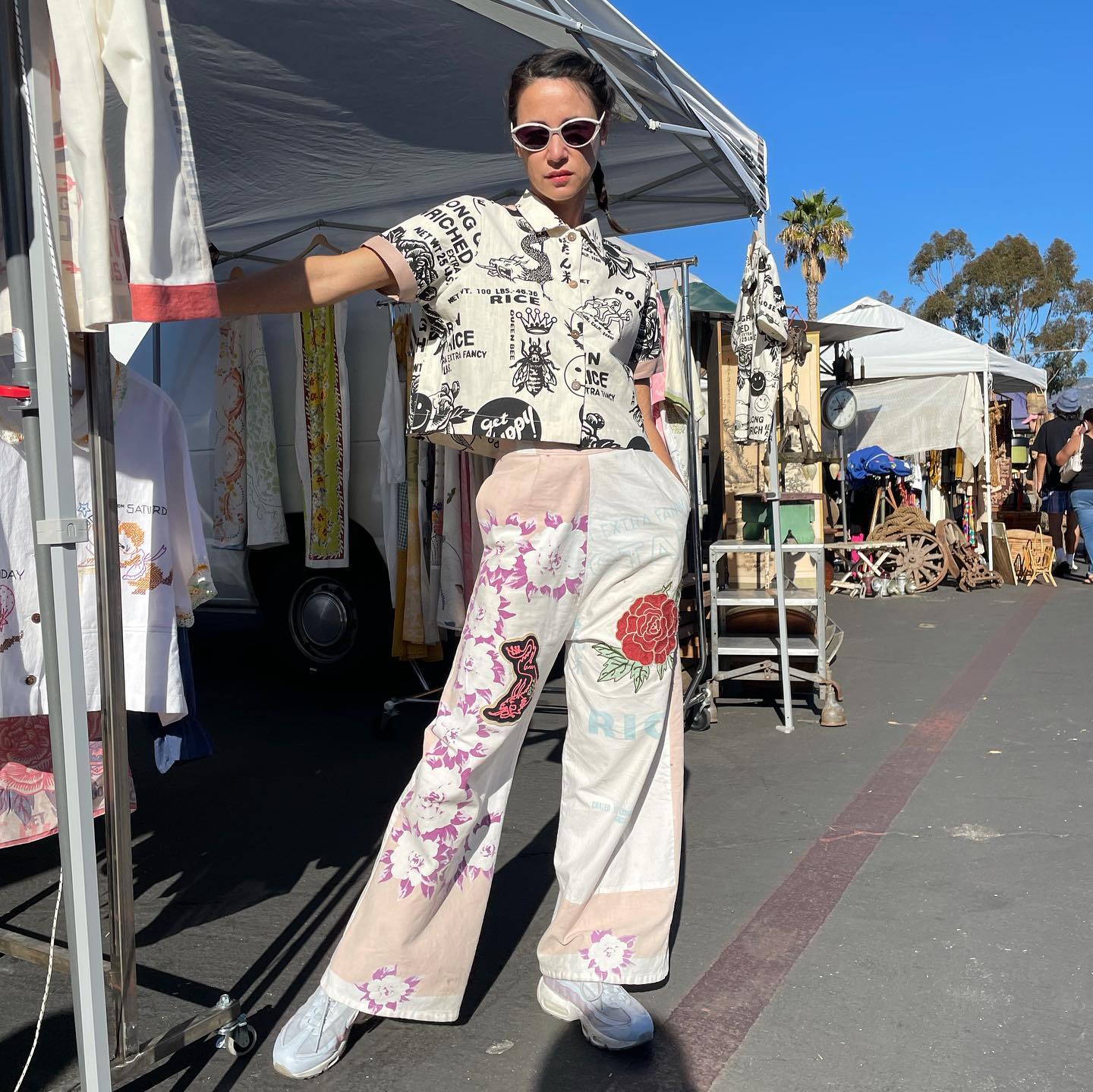
The procurement of these vintage fabrics is a dance both meticulous and adventurous. “For us, the thrill of sourcing is entwined with the hunt,” Mumford confided to Karmactive. While the brand has nurtured connections in the vintage industry, with fellow vintage enthusiasts often sharing their finds, a significant weave of their fabric sourcing is lovingly done hands-on by the team. For them, the thrill is woven into the hunt – exploring through old collections, caressing the textures, and envisioning the potential of each fabric. This hands-on approach ensures that every piece of textile they select not only meets their standards of quality but also resonates with their brand’s ethos. Natalie shared, “Sourcing locally and focusing on vintage textiles is our way of gently championing sustainability while ensuring that our creations are truly one-of-a-kind.” By prioritizing vintage and locally-sourced textiles, 3 Women not only champions reuse, refurbish, and recycle but also celebrates the rich tapestry of stories and histories that are gently cradled within each fabric.
For us, every piece of textile we select isn’t just material; it’s a piece of history, a story waiting to be retold through our designs. Every fabric has a narrative, and our job is to continue that narrative in a contemporary context, making it relevant for today’s fashion enthusiasts.
Natalie Mumford, Co-Founder 3 Women
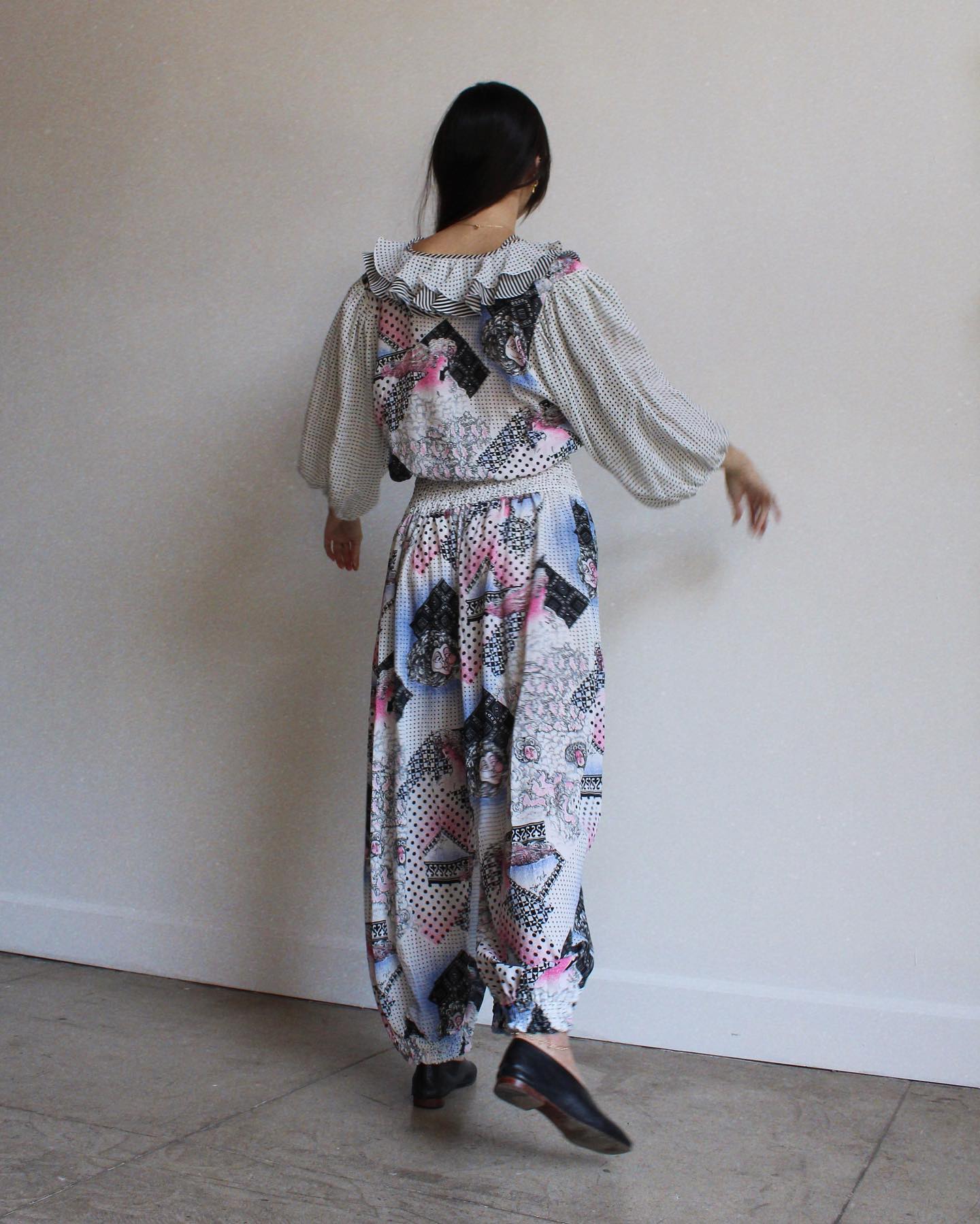
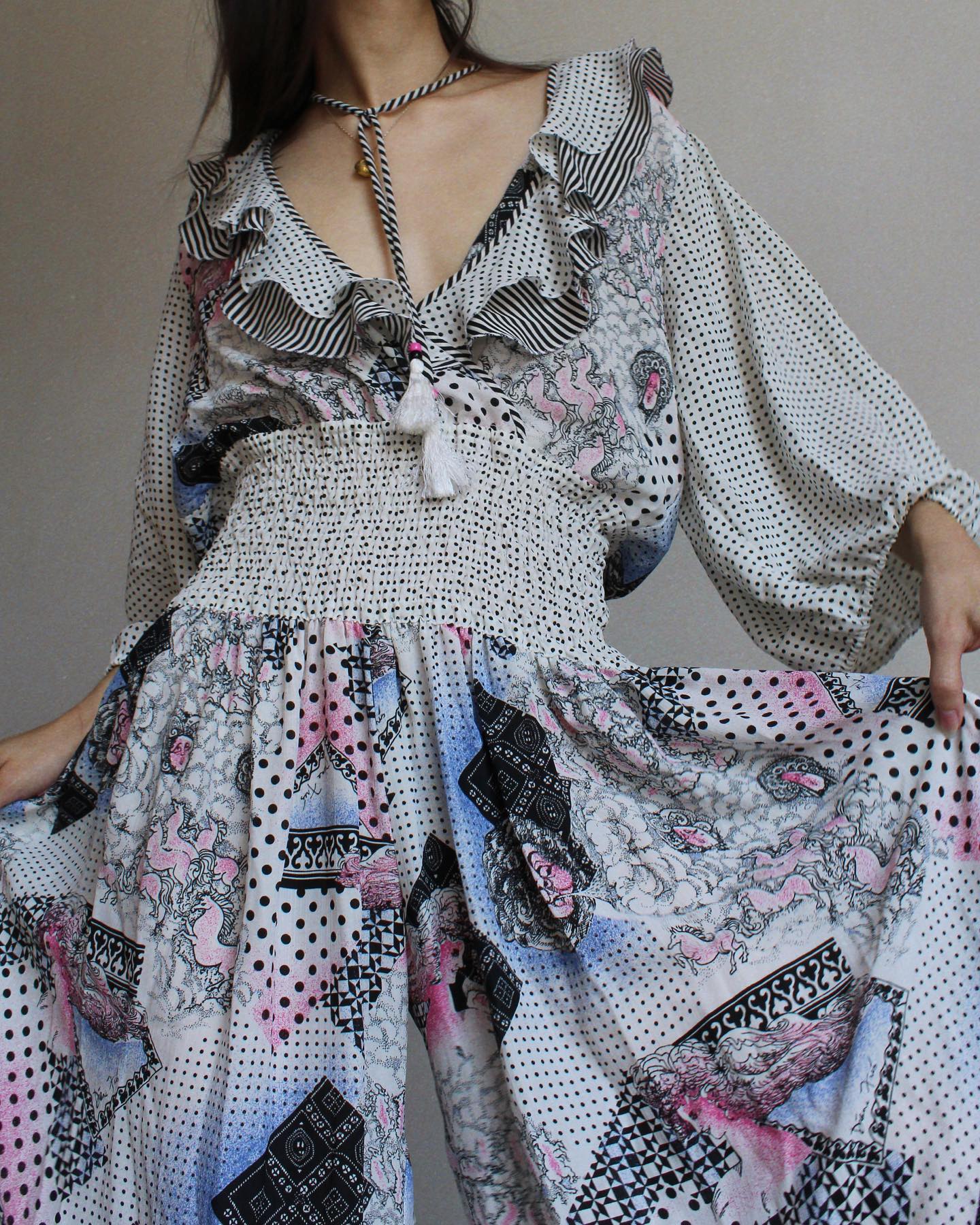
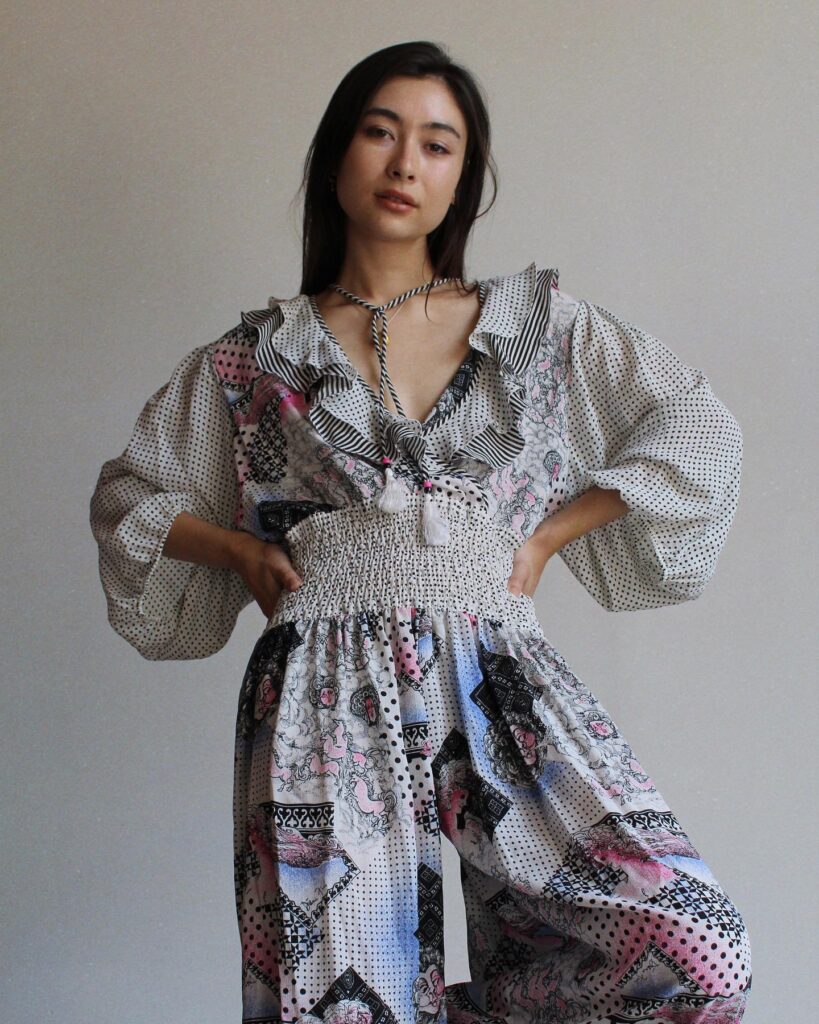
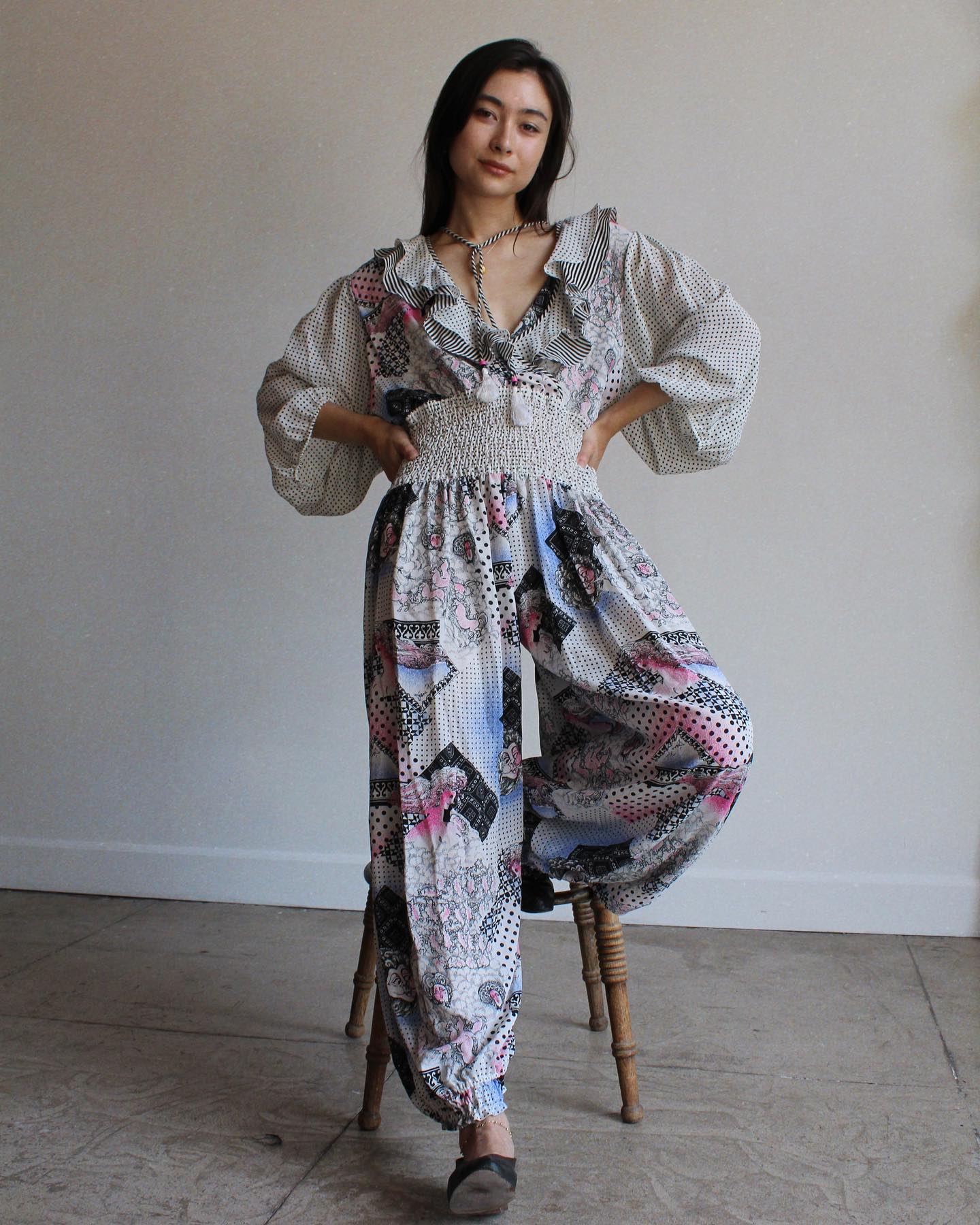
The Path Forward
Embarking on a path forward invites a collective metamorphosis of mindset, where brands gently cradle the environment above the rapid tendrils of expansion and profits. The journey of 3 Women, weaving jackets in backyards from storied rice sacks to blossoming into a systematic, conscious entity, unfurls as a beacon of inspiration. Their ethos, tenderly wrapped around sustainability, community, and inclusivity, whispers a blueprint to others in the industry, where collaboration, both within the vibrant tapestry of the industry and with local communities, becomes the key. As Mumford shared with Karmactive, “Our strength is woven from threads of collaboration, connectivity, and community.”





Peering into the future, the duo nurtures an optimistic bloom for 3 Women. “We have a tapestry of creations yet to unfurl,” Mumford shared, reflecting on their brand’s potential. Yet, challenges, like persistent weeds, remain. Mumford underscores the thirst for more funding and innovation in the sustainable fashion garden, pointing towards the deep, shadowy pockets of the fast fashion industry. Moreover, consumers, as pivotal gardeners, by nurturing planet-friendly brands and being conscious curators of their purchasing decisions, can drive the demand for eco-friendly blooms. The industry, too, needs to sow seeds in research and innovation to discover eco-friendly alternatives to current practices. While challenges weave through the garden, the fashion industry stands at a crossroads, under the gentle gaze of possibility and change.
@3womenco
Every step forward, every conscious choice, contributes to this sustainable journey, choosing to support brands like 3 Women, understanding the story and meticulous craftsmanship behind each piece, and making choices that prioritize the gentle embrace of quality and sustainability over the rapid pulse of quantity and fast fashion. Opting for custom, made-to-measure pieces, consumers not only acquire a piece of clothing but also become a part of a story, a planet-friendly movement, and a community that values the preservation of our environment and heritage. This collective step towards conscious consumerism, where every purchase is thoughtful and every item is cherished, can pave a path towards a more environmentally conscious and ethical fashion industry, where every thread tells a story of care, community, and conscious creation.
